
What Is A Research (Scientific) Hypothesis? A plain-language explainer + examples
By: Derek Jansen (MBA) | Reviewed By: Dr Eunice Rautenbach | June 2020
If you’re new to the world of research, or it’s your first time writing a dissertation or thesis, you’re probably noticing that the words “research hypothesis” and “scientific hypothesis” are used quite a bit, and you’re wondering what they mean in a research context .
“Hypothesis” is one of those words that people use loosely, thinking they understand what it means. However, it has a very specific meaning within academic research. So, it’s important to understand the exact meaning before you start hypothesizing.
Research Hypothesis 101
- What is a hypothesis ?
- What is a research hypothesis (scientific hypothesis)?
- Requirements for a research hypothesis
- Definition of a research hypothesis
- The null hypothesis
What is a hypothesis?
Let’s start with the general definition of a hypothesis (not a research hypothesis or scientific hypothesis), according to the Cambridge Dictionary:
Hypothesis: an idea or explanation for something that is based on known facts but has not yet been proved.
In other words, it’s a statement that provides an explanation for why or how something works, based on facts (or some reasonable assumptions), but that has not yet been specifically tested . For example, a hypothesis might look something like this:
Hypothesis: sleep impacts academic performance.
This statement predicts that academic performance will be influenced by the amount and/or quality of sleep a student engages in – sounds reasonable, right? It’s based on reasonable assumptions , underpinned by what we currently know about sleep and health (from the existing literature). So, loosely speaking, we could call it a hypothesis, at least by the dictionary definition.
But that’s not good enough…
Unfortunately, that’s not quite sophisticated enough to describe a research hypothesis (also sometimes called a scientific hypothesis), and it wouldn’t be acceptable in a dissertation, thesis or research paper . In the world of academic research, a statement needs a few more criteria to constitute a true research hypothesis .
What is a research hypothesis?
A research hypothesis (also called a scientific hypothesis) is a statement about the expected outcome of a study (for example, a dissertation or thesis). To constitute a quality hypothesis, the statement needs to have three attributes – specificity , clarity and testability .
Let’s take a look at these more closely.
Need a helping hand?
Hypothesis Essential #1: Specificity & Clarity
A good research hypothesis needs to be extremely clear and articulate about both what’ s being assessed (who or what variables are involved ) and the expected outcome (for example, a difference between groups, a relationship between variables, etc.).
Let’s stick with our sleepy students example and look at how this statement could be more specific and clear.
Hypothesis: Students who sleep at least 8 hours per night will, on average, achieve higher grades in standardised tests than students who sleep less than 8 hours a night.
As you can see, the statement is very specific as it identifies the variables involved (sleep hours and test grades), the parties involved (two groups of students), as well as the predicted relationship type (a positive relationship). There’s no ambiguity or uncertainty about who or what is involved in the statement, and the expected outcome is clear.
Contrast that to the original hypothesis we looked at – “Sleep impacts academic performance” – and you can see the difference. “Sleep” and “academic performance” are both comparatively vague , and there’s no indication of what the expected relationship direction is (more sleep or less sleep). As you can see, specificity and clarity are key.

Hypothesis Essential #2: Testability (Provability)
A statement must be testable to qualify as a research hypothesis. In other words, there needs to be a way to prove (or disprove) the statement. If it’s not testable, it’s not a hypothesis – simple as that.
For example, consider the hypothesis we mentioned earlier:
Hypothesis: Students who sleep at least 8 hours per night will, on average, achieve higher grades in standardised tests than students who sleep less than 8 hours a night.
We could test this statement by undertaking a quantitative study involving two groups of students, one that gets 8 or more hours of sleep per night for a fixed period, and one that gets less. We could then compare the standardised test results for both groups to see if there’s a statistically significant difference.
Again, if you compare this to the original hypothesis we looked at – “Sleep impacts academic performance” – you can see that it would be quite difficult to test that statement, primarily because it isn’t specific enough. How much sleep? By who? What type of academic performance?
So, remember the mantra – if you can’t test it, it’s not a hypothesis 🙂

Defining A Research Hypothesis
You’re still with us? Great! Let’s recap and pin down a clear definition of a hypothesis.
A research hypothesis (or scientific hypothesis) is a statement about an expected relationship between variables, or explanation of an occurrence, that is clear, specific and testable.
So, when you write up hypotheses for your dissertation or thesis, make sure that they meet all these criteria. If you do, you’ll not only have rock-solid hypotheses but you’ll also ensure a clear focus for your entire research project.
What about the null hypothesis?
You may have also heard the terms null hypothesis , alternative hypothesis, or H-zero thrown around. At a simple level, the null hypothesis is the counter-proposal to the original hypothesis.
For example, if the hypothesis predicts that there is a relationship between two variables (for example, sleep and academic performance), the null hypothesis would predict that there is no relationship between those variables.
At a more technical level, the null hypothesis proposes that no statistical significance exists in a set of given observations and that any differences are due to chance alone.
And there you have it – hypotheses in a nutshell.
If you have any questions, be sure to leave a comment below and we’ll do our best to help you. If you need hands-on help developing and testing your hypotheses, consider our private coaching service , where we hold your hand through the research journey.

Psst... there’s more!
This post was based on one of our popular Research Bootcamps . If you're working on a research project, you'll definitely want to check this out ...
You Might Also Like:

16 Comments
Very useful information. I benefit more from getting more information in this regard.
Very great insight,educative and informative. Please give meet deep critics on many research data of public international Law like human rights, environment, natural resources, law of the sea etc
In a book I read a distinction is made between null, research, and alternative hypothesis. As far as I understand, alternative and research hypotheses are the same. Can you please elaborate? Best Afshin
This is a self explanatory, easy going site. I will recommend this to my friends and colleagues.
Very good definition. How can I cite your definition in my thesis? Thank you. Is nul hypothesis compulsory in a research?
It’s a counter-proposal to be proven as a rejection
Please what is the difference between alternate hypothesis and research hypothesis?
It is a very good explanation. However, it limits hypotheses to statistically tasteable ideas. What about for qualitative researches or other researches that involve quantitative data that don’t need statistical tests?
In qualitative research, one typically uses propositions, not hypotheses.
could you please elaborate it more
I’ve benefited greatly from these notes, thank you.
This is very helpful
well articulated ideas are presented here, thank you for being reliable sources of information
Excellent. Thanks for being clear and sound about the research methodology and hypothesis (quantitative research)
I have only a simple question regarding the null hypothesis. – Is the null hypothesis (Ho) known as the reversible hypothesis of the alternative hypothesis (H1? – How to test it in academic research?
this is very important note help me much more
Trackbacks/Pingbacks
- What Is Research Methodology? Simple Definition (With Examples) - Grad Coach - […] Contrasted to this, a quantitative methodology is typically used when the research aims and objectives are confirmatory in nature. For example,…
Submit a Comment Cancel reply
Your email address will not be published. Required fields are marked *
Save my name, email, and website in this browser for the next time I comment.
- Print Friendly

- Customer Reviews
- Extended Essays
- IB Internal Assessment
- Theory of Knowledge
- Literature Review
- Dissertations
- Essay Writing
- Research Writing
- Assignment Help
- Capstone Projects
- College Application
- Online Class
Research Questions vs Hypothesis: Understanding the Difference Between Them
by Antony W
August 20, 2021

You’ll need to come up with a research question or a hypothesis to guide your next research project. But what is a hypothesis in the first place? What is the perfect definition for a research question? And, what’s the difference between the two?
In this guide to research questions vs hypothesis, we’ll look at the definition of each component and the difference between the two.
We’ll also look at when a research question and a hypothesis may be useful and provide you with some tips that you can use to come up with hypothesis and research questions that will suit your research topic .
Let’s get to it.
What’s a Research Question?
We define a research question as the exact question you want to answer on a given topic or research project. Good research questions should be clear and easy to understand, allow for the collection of necessary data, and be specific and relevant to your field of study.
Research questions are part of heuristic research methods, where researchers use personal experiences and observations to understand a research subject. By using such approaches to explore the question, you should be able to provide an analytical justification of why and how you should respond to the question.
While it’s common for researchers to focus on one question at a time, more complex topics may require two or more questions to cover in-depth.
When is a Research Question Useful?
A research question may be useful when and if:
- There isn’t enough previous research on the topic
- You want to report a wider range out of outcome when doing your research project
- You want to conduct a more open ended inquiries
Perhaps the biggest drawback with research questions is that they tend to researchers in a position to “fish expectations” or excessively manipulate their findings.
Again, research questions sometimes tend to be less specific, and the reason is that there often no sufficient previous research on the questions.
What’s a Hypothesis?
A hypothesis is a statement you can approve or disapprove. You develop a hypothesis from a research question by changing the question into a statement.
Primarily applied in deductive research, it involves the use of scientific, mathematical, and sociological findings to agree to or write off an assumption.
Researchers use the null approach for statements they can disapprove. They take a hypothesis and add a “not” to it to make it a working null hypothesis.
A null hypothesis is quite common in scientific methods. In this case, you have to formulate a hypothesis, and then conduct an investigation to disapprove the statement.
If you can disapprove the statement, you develop another hypothesis and then repeat the process until you can’t disapprove the statement.
In other words, if a hypothesis is true, then it must have been repeatedly tested and verified.
The consensus among researchers is that, like research questions, a hypothesis should not only be clear and easy to understand but also have a definite focus, answerable, and relevant to your field of study.
When is a Hypothesis Useful?
A hypothesis may be useful when or if:
- There’s enough previous research on the topic
- You want to test a specific model or a particular theory
- You anticipate a likely outcome in advance
The drawback to hypothesis as a scientific method is that it can hinder flexibility, or possibly blind a researcher not to see unanticipated results.
Research Question vs Hypothesis: Which One Should Come First
Researchers use scientific methods to hone on different theories. So if the purpose of the research project were to analyze a concept, a scientific method would be necessary.
Such a case requires coming up with a research question first, followed by a scientific method.
Since a hypothesis is part of a research method, it will come after the research question.
Research Question vs Hypothesis: What’s the Difference?
The following are the differences between a research question and a hypothesis.
We look at the differences in purpose and structure, writing, as well as conclusion.
Research Questions vs Hypothesis: Some Useful Advice
As much as there are differences between hypothesis and research questions, you have to state either one in the introduction and then repeat the same in the conclusion of your research paper.
Whichever element you opt to use, you should clearly demonstrate that you understand your topic, have achieved the goal of your research project, and not swayed a bit in your research process.
If it helps, start and conclude every chapter of your research project by providing additional information on how you’ve or will address the hypothesis or research question.
You should also include the aims and objectives of coming up with the research question or formulating the hypothesis. Doing so will go a long way to demonstrate that you have a strong focus on the research issue at hand.
Research Questions vs Hypothesis: Conclusion
If you need help with coming up with research questions, formulating a hypothesis, and completing your research paper writing , feel free to talk to us.
About the author
Antony W is a professional writer and coach at Help for Assessment. He spends countless hours every day researching and writing great content filled with expert advice on how to write engaging essays, research papers, and assignments.

- Manuscript Preparation
What is and How to Write a Good Hypothesis in Research?
- 4 minute read
- 310.4K views
Table of Contents
One of the most important aspects of conducting research is constructing a strong hypothesis. But what makes a hypothesis in research effective? In this article, we’ll look at the difference between a hypothesis and a research question, as well as the elements of a good hypothesis in research. We’ll also include some examples of effective hypotheses, and what pitfalls to avoid.
What is a Hypothesis in Research?
Simply put, a hypothesis is a research question that also includes the predicted or expected result of the research. Without a hypothesis, there can be no basis for a scientific or research experiment. As such, it is critical that you carefully construct your hypothesis by being deliberate and thorough, even before you set pen to paper. Unless your hypothesis is clearly and carefully constructed, any flaw can have an adverse, and even grave, effect on the quality of your experiment and its subsequent results.
Research Question vs Hypothesis
It’s easy to confuse research questions with hypotheses, and vice versa. While they’re both critical to the Scientific Method, they have very specific differences. Primarily, a research question, just like a hypothesis, is focused and concise. But a hypothesis includes a prediction based on the proposed research, and is designed to forecast the relationship of and between two (or more) variables. Research questions are open-ended, and invite debate and discussion, while hypotheses are closed, e.g. “The relationship between A and B will be C.”
A hypothesis is generally used if your research topic is fairly well established, and you are relatively certain about the relationship between the variables that will be presented in your research. Since a hypothesis is ideally suited for experimental studies, it will, by its very existence, affect the design of your experiment. The research question is typically used for new topics that have not yet been researched extensively. Here, the relationship between different variables is less known. There is no prediction made, but there may be variables explored. The research question can be casual in nature, simply trying to understand if a relationship even exists, descriptive or comparative.
How to Write Hypothesis in Research
Writing an effective hypothesis starts before you even begin to type. Like any task, preparation is key, so you start first by conducting research yourself, and reading all you can about the topic that you plan to research. From there, you’ll gain the knowledge you need to understand where your focus within the topic will lie.
Remember that a hypothesis is a prediction of the relationship that exists between two or more variables. Your job is to write a hypothesis, and design the research, to “prove” whether or not your prediction is correct. A common pitfall is to use judgments that are subjective and inappropriate for the construction of a hypothesis. It’s important to keep the focus and language of your hypothesis objective.
An effective hypothesis in research is clearly and concisely written, and any terms or definitions clarified and defined. Specific language must also be used to avoid any generalities or assumptions.
Use the following points as a checklist to evaluate the effectiveness of your research hypothesis:
- Predicts the relationship and outcome
- Simple and concise – avoid wordiness
- Clear with no ambiguity or assumptions about the readers’ knowledge
- Observable and testable results
- Relevant and specific to the research question or problem
Research Hypothesis Example
Perhaps the best way to evaluate whether or not your hypothesis is effective is to compare it to those of your colleagues in the field. There is no need to reinvent the wheel when it comes to writing a powerful research hypothesis. As you’re reading and preparing your hypothesis, you’ll also read other hypotheses. These can help guide you on what works, and what doesn’t, when it comes to writing a strong research hypothesis.
Here are a few generic examples to get you started.
Eating an apple each day, after the age of 60, will result in a reduction of frequency of physician visits.
Budget airlines are more likely to receive more customer complaints. A budget airline is defined as an airline that offers lower fares and fewer amenities than a traditional full-service airline. (Note that the term “budget airline” is included in the hypothesis.
Workplaces that offer flexible working hours report higher levels of employee job satisfaction than workplaces with fixed hours.
Each of the above examples are specific, observable and measurable, and the statement of prediction can be verified or shown to be false by utilizing standard experimental practices. It should be noted, however, that often your hypothesis will change as your research progresses.
Language Editing Plus
Elsevier’s Language Editing Plus service can help ensure that your research hypothesis is well-designed, and articulates your research and conclusions. Our most comprehensive editing package, you can count on a thorough language review by native-English speakers who are PhDs or PhD candidates. We’ll check for effective logic and flow of your manuscript, as well as document formatting for your chosen journal, reference checks, and much more.

- Research Process
Systematic Literature Review or Literature Review?

What is a Problem Statement? [with examples]
You may also like.

Make Hook, Line, and Sinker: The Art of Crafting Engaging Introductions

Can Describing Study Limitations Improve the Quality of Your Paper?

A Guide to Crafting Shorter, Impactful Sentences in Academic Writing

6 Steps to Write an Excellent Discussion in Your Manuscript

How to Write Clear and Crisp Civil Engineering Papers? Here are 5 Key Tips to Consider

The Clear Path to An Impactful Paper: ②

The Essentials of Writing to Communicate Research in Medicine

Changing Lines: Sentence Patterns in Academic Writing
Input your search keywords and press Enter.
- Bipolar Disorder
- Therapy Center
- When To See a Therapist
- Types of Therapy
- Best Online Therapy
- Best Couples Therapy
- Best Family Therapy
- Managing Stress
- Sleep and Dreaming
- Understanding Emotions
- Self-Improvement
- Healthy Relationships
- Student Resources
- Personality Types
- Guided Meditations
- Verywell Mind Insights
- 2024 Verywell Mind 25
- Mental Health in the Classroom
- Editorial Process
- Meet Our Review Board
- Crisis Support
How to Write a Great Hypothesis
Hypothesis Definition, Format, Examples, and Tips
Kendra Cherry, MS, is a psychosocial rehabilitation specialist, psychology educator, and author of the "Everything Psychology Book."
:max_bytes(150000):strip_icc():format(webp)/IMG_9791-89504ab694d54b66bbd72cb84ffb860e.jpg)
Amy Morin, LCSW, is a psychotherapist and international bestselling author. Her books, including "13 Things Mentally Strong People Don't Do," have been translated into more than 40 languages. Her TEDx talk, "The Secret of Becoming Mentally Strong," is one of the most viewed talks of all time.
:max_bytes(150000):strip_icc():format(webp)/VW-MIND-Amy-2b338105f1ee493f94d7e333e410fa76.jpg)
Verywell / Alex Dos Diaz
- The Scientific Method
Hypothesis Format
Falsifiability of a hypothesis.
- Operationalization
Hypothesis Types
Hypotheses examples.
- Collecting Data
A hypothesis is a tentative statement about the relationship between two or more variables. It is a specific, testable prediction about what you expect to happen in a study. It is a preliminary answer to your question that helps guide the research process.
Consider a study designed to examine the relationship between sleep deprivation and test performance. The hypothesis might be: "This study is designed to assess the hypothesis that sleep-deprived people will perform worse on a test than individuals who are not sleep-deprived."
At a Glance
A hypothesis is crucial to scientific research because it offers a clear direction for what the researchers are looking to find. This allows them to design experiments to test their predictions and add to our scientific knowledge about the world. This article explores how a hypothesis is used in psychology research, how to write a good hypothesis, and the different types of hypotheses you might use.
The Hypothesis in the Scientific Method
In the scientific method , whether it involves research in psychology, biology, or some other area, a hypothesis represents what the researchers think will happen in an experiment. The scientific method involves the following steps:
- Forming a question
- Performing background research
- Creating a hypothesis
- Designing an experiment
- Collecting data
- Analyzing the results
- Drawing conclusions
- Communicating the results
The hypothesis is a prediction, but it involves more than a guess. Most of the time, the hypothesis begins with a question which is then explored through background research. At this point, researchers then begin to develop a testable hypothesis.
Unless you are creating an exploratory study, your hypothesis should always explain what you expect to happen.
In a study exploring the effects of a particular drug, the hypothesis might be that researchers expect the drug to have some type of effect on the symptoms of a specific illness. In psychology, the hypothesis might focus on how a certain aspect of the environment might influence a particular behavior.
Remember, a hypothesis does not have to be correct. While the hypothesis predicts what the researchers expect to see, the goal of the research is to determine whether this guess is right or wrong. When conducting an experiment, researchers might explore numerous factors to determine which ones might contribute to the ultimate outcome.
In many cases, researchers may find that the results of an experiment do not support the original hypothesis. When writing up these results, the researchers might suggest other options that should be explored in future studies.
In many cases, researchers might draw a hypothesis from a specific theory or build on previous research. For example, prior research has shown that stress can impact the immune system. So a researcher might hypothesize: "People with high-stress levels will be more likely to contract a common cold after being exposed to the virus than people who have low-stress levels."
In other instances, researchers might look at commonly held beliefs or folk wisdom. "Birds of a feather flock together" is one example of folk adage that a psychologist might try to investigate. The researcher might pose a specific hypothesis that "People tend to select romantic partners who are similar to them in interests and educational level."
Elements of a Good Hypothesis
So how do you write a good hypothesis? When trying to come up with a hypothesis for your research or experiments, ask yourself the following questions:
- Is your hypothesis based on your research on a topic?
- Can your hypothesis be tested?
- Does your hypothesis include independent and dependent variables?
Before you come up with a specific hypothesis, spend some time doing background research. Once you have completed a literature review, start thinking about potential questions you still have. Pay attention to the discussion section in the journal articles you read . Many authors will suggest questions that still need to be explored.
How to Formulate a Good Hypothesis
To form a hypothesis, you should take these steps:
- Collect as many observations about a topic or problem as you can.
- Evaluate these observations and look for possible causes of the problem.
- Create a list of possible explanations that you might want to explore.
- After you have developed some possible hypotheses, think of ways that you could confirm or disprove each hypothesis through experimentation. This is known as falsifiability.
In the scientific method , falsifiability is an important part of any valid hypothesis. In order to test a claim scientifically, it must be possible that the claim could be proven false.
Students sometimes confuse the idea of falsifiability with the idea that it means that something is false, which is not the case. What falsifiability means is that if something was false, then it is possible to demonstrate that it is false.
One of the hallmarks of pseudoscience is that it makes claims that cannot be refuted or proven false.
The Importance of Operational Definitions
A variable is a factor or element that can be changed and manipulated in ways that are observable and measurable. However, the researcher must also define how the variable will be manipulated and measured in the study.
Operational definitions are specific definitions for all relevant factors in a study. This process helps make vague or ambiguous concepts detailed and measurable.
For example, a researcher might operationally define the variable " test anxiety " as the results of a self-report measure of anxiety experienced during an exam. A "study habits" variable might be defined by the amount of studying that actually occurs as measured by time.
These precise descriptions are important because many things can be measured in various ways. Clearly defining these variables and how they are measured helps ensure that other researchers can replicate your results.
Replicability
One of the basic principles of any type of scientific research is that the results must be replicable.
Replication means repeating an experiment in the same way to produce the same results. By clearly detailing the specifics of how the variables were measured and manipulated, other researchers can better understand the results and repeat the study if needed.
Some variables are more difficult than others to define. For example, how would you operationally define a variable such as aggression ? For obvious ethical reasons, researchers cannot create a situation in which a person behaves aggressively toward others.
To measure this variable, the researcher must devise a measurement that assesses aggressive behavior without harming others. The researcher might utilize a simulated task to measure aggressiveness in this situation.
Hypothesis Checklist
- Does your hypothesis focus on something that you can actually test?
- Does your hypothesis include both an independent and dependent variable?
- Can you manipulate the variables?
- Can your hypothesis be tested without violating ethical standards?
The hypothesis you use will depend on what you are investigating and hoping to find. Some of the main types of hypotheses that you might use include:
- Simple hypothesis : This type of hypothesis suggests there is a relationship between one independent variable and one dependent variable.
- Complex hypothesis : This type suggests a relationship between three or more variables, such as two independent and dependent variables.
- Null hypothesis : This hypothesis suggests no relationship exists between two or more variables.
- Alternative hypothesis : This hypothesis states the opposite of the null hypothesis.
- Statistical hypothesis : This hypothesis uses statistical analysis to evaluate a representative population sample and then generalizes the findings to the larger group.
- Logical hypothesis : This hypothesis assumes a relationship between variables without collecting data or evidence.
A hypothesis often follows a basic format of "If {this happens} then {this will happen}." One way to structure your hypothesis is to describe what will happen to the dependent variable if you change the independent variable .
The basic format might be: "If {these changes are made to a certain independent variable}, then we will observe {a change in a specific dependent variable}."
A few examples of simple hypotheses:
- "Students who eat breakfast will perform better on a math exam than students who do not eat breakfast."
- "Students who experience test anxiety before an English exam will get lower scores than students who do not experience test anxiety."
- "Motorists who talk on the phone while driving will be more likely to make errors on a driving course than those who do not talk on the phone."
- "Children who receive a new reading intervention will have higher reading scores than students who do not receive the intervention."
Examples of a complex hypothesis include:
- "People with high-sugar diets and sedentary activity levels are more likely to develop depression."
- "Younger people who are regularly exposed to green, outdoor areas have better subjective well-being than older adults who have limited exposure to green spaces."
Examples of a null hypothesis include:
- "There is no difference in anxiety levels between people who take St. John's wort supplements and those who do not."
- "There is no difference in scores on a memory recall task between children and adults."
- "There is no difference in aggression levels between children who play first-person shooter games and those who do not."
Examples of an alternative hypothesis:
- "People who take St. John's wort supplements will have less anxiety than those who do not."
- "Adults will perform better on a memory task than children."
- "Children who play first-person shooter games will show higher levels of aggression than children who do not."
Collecting Data on Your Hypothesis
Once a researcher has formed a testable hypothesis, the next step is to select a research design and start collecting data. The research method depends largely on exactly what they are studying. There are two basic types of research methods: descriptive research and experimental research.
Descriptive Research Methods
Descriptive research such as case studies , naturalistic observations , and surveys are often used when conducting an experiment is difficult or impossible. These methods are best used to describe different aspects of a behavior or psychological phenomenon.
Once a researcher has collected data using descriptive methods, a correlational study can examine how the variables are related. This research method might be used to investigate a hypothesis that is difficult to test experimentally.
Experimental Research Methods
Experimental methods are used to demonstrate causal relationships between variables. In an experiment, the researcher systematically manipulates a variable of interest (known as the independent variable) and measures the effect on another variable (known as the dependent variable).
Unlike correlational studies, which can only be used to determine if there is a relationship between two variables, experimental methods can be used to determine the actual nature of the relationship—whether changes in one variable actually cause another to change.
The hypothesis is a critical part of any scientific exploration. It represents what researchers expect to find in a study or experiment. In situations where the hypothesis is unsupported by the research, the research still has value. Such research helps us better understand how different aspects of the natural world relate to one another. It also helps us develop new hypotheses that can then be tested in the future.
Thompson WH, Skau S. On the scope of scientific hypotheses . R Soc Open Sci . 2023;10(8):230607. doi:10.1098/rsos.230607
Taran S, Adhikari NKJ, Fan E. Falsifiability in medicine: what clinicians can learn from Karl Popper [published correction appears in Intensive Care Med. 2021 Jun 17;:]. Intensive Care Med . 2021;47(9):1054-1056. doi:10.1007/s00134-021-06432-z
Eyler AA. Research Methods for Public Health . 1st ed. Springer Publishing Company; 2020. doi:10.1891/9780826182067.0004
Nosek BA, Errington TM. What is replication ? PLoS Biol . 2020;18(3):e3000691. doi:10.1371/journal.pbio.3000691
Aggarwal R, Ranganathan P. Study designs: Part 2 - Descriptive studies . Perspect Clin Res . 2019;10(1):34-36. doi:10.4103/picr.PICR_154_18
Nevid J. Psychology: Concepts and Applications. Wadworth, 2013.
By Kendra Cherry, MSEd Kendra Cherry, MS, is a psychosocial rehabilitation specialist, psychology educator, and author of the "Everything Psychology Book."
- Link to facebook
- Link to linkedin
- Link to twitter
- Link to youtube
- Writing Tips
Are Research Questions and Hypotheses the Same?

3-minute read
- 23rd March 2022
A researcher might assume that research questions and hypotheses are identical concepts and should be treated equally in their approach to research. Are they really the same? Let’s find out!
While both are powerful research instruments that are determined in the initial experimental phase and help to guide the research planning and processes, the similarities end there. Read on to discover the differences between these two terms and understand how to accurately apply them in your research paper .
A hypothesis , specifically in academic research, is an educated guess or assumption about an expected relationship or occurrence that can be tested to determine if it’s correct. Essentially, you’ll make a statement —almost like a prediction—about a specific event or a relationship between two or more variables. You’ll then perform in-depth research into the topic and conduct experiments and tests to prove if the statement is true. A hypothesis is far more structured and requires you to have a fair amount of existing knowledge about your chosen topic. Using what you already know, you’ll follow a predetermined plan to prove or disprove your initial assumption.
Research Question
A research question is simply an unanswered question the researcher has about a topic that intrigues them or a query about the world or life in general. You’ll pose this question at the start of your research paper. You’ll then accumulate as much information as possible to determine a reasonable answer. Alternatively, with adequate proof, you can explain why the question should be left as is—unanswered. As you can see, research questions offer a more flexible approach since it’s essentially an investigation to appease your curiosity as a researcher. You don’t have to arrive at any specific answer, but your research should provide your readers with enough knowledge to draw their own conclusions.
At a Glance
● Hypotheses are used in mathematics, engineering, and every branch of science.
● Research questions are typically used when researching less calculable fields like literature, education, and sociology.
Find this useful?
Subscribe to our newsletter and get writing tips from our editors straight to your inbox.
● Prior knowledge is required to form a hypothesis, following a very structured approach to arrive at a definite answer—was the assumption correct or not?
● Researchers have more leniency when compiling papers based on research questions since the nature of the questions is more open-ended.
● For a hypothesis, your conclusion should state whether you were able to prove your hypothesis to be true or not based on the results of your research and testing.
● With a research question, you’ll use the conclusion section to summarize your answer based on your personal findings.
Now that you understand the correct way to incorporate these terms in your research papers, consider submitting a free sample to us ! Our proofreaders are available 24/7 to help ensure that your hard work translates into a concise, error-free, and effective academic achievement.
Share this article:
Post A New Comment
Got content that needs a quick turnaround? Let us polish your work. Explore our editorial business services.
How to insert a text box in a google doc.
Google Docs is a powerful collaborative tool, and mastering its features can significantly enhance your...
2-minute read
How to Cite the CDC in APA
If you’re writing about health issues, you might need to reference the Centers for Disease...
5-minute read
Six Product Description Generator Tools for Your Product Copy
Introduction If you’re involved with ecommerce, you’re likely familiar with the often painstaking process of...
What Is a Content Editor?
Are you interested in learning more about the role of a content editor and the...
4-minute read
The Benefits of Using an Online Proofreading Service
Proofreading is important to ensure your writing is clear and concise for your readers. Whether...
6 Online AI Presentation Maker Tools
Creating presentations can be time-consuming and frustrating. Trying to construct a visually appealing and informative...

Make sure your writing is the best it can be with our expert English proofreading and editing.
Research Hypothesis In Psychology: Types, & Examples
Saul Mcleod, PhD
Editor-in-Chief for Simply Psychology
BSc (Hons) Psychology, MRes, PhD, University of Manchester
Saul Mcleod, PhD., is a qualified psychology teacher with over 18 years of experience in further and higher education. He has been published in peer-reviewed journals, including the Journal of Clinical Psychology.
Learn about our Editorial Process
Olivia Guy-Evans, MSc
Associate Editor for Simply Psychology
BSc (Hons) Psychology, MSc Psychology of Education
Olivia Guy-Evans is a writer and associate editor for Simply Psychology. She has previously worked in healthcare and educational sectors.
On This Page:
A research hypothesis, in its plural form “hypotheses,” is a specific, testable prediction about the anticipated results of a study, established at its outset. It is a key component of the scientific method .
Hypotheses connect theory to data and guide the research process towards expanding scientific understanding
Some key points about hypotheses:
- A hypothesis expresses an expected pattern or relationship. It connects the variables under investigation.
- It is stated in clear, precise terms before any data collection or analysis occurs. This makes the hypothesis testable.
- A hypothesis must be falsifiable. It should be possible, even if unlikely in practice, to collect data that disconfirms rather than supports the hypothesis.
- Hypotheses guide research. Scientists design studies to explicitly evaluate hypotheses about how nature works.
- For a hypothesis to be valid, it must be testable against empirical evidence. The evidence can then confirm or disprove the testable predictions.
- Hypotheses are informed by background knowledge and observation, but go beyond what is already known to propose an explanation of how or why something occurs.
Predictions typically arise from a thorough knowledge of the research literature, curiosity about real-world problems or implications, and integrating this to advance theory. They build on existing literature while providing new insight.
Types of Research Hypotheses
Alternative hypothesis.
The research hypothesis is often called the alternative or experimental hypothesis in experimental research.
It typically suggests a potential relationship between two key variables: the independent variable, which the researcher manipulates, and the dependent variable, which is measured based on those changes.
The alternative hypothesis states a relationship exists between the two variables being studied (one variable affects the other).
A hypothesis is a testable statement or prediction about the relationship between two or more variables. It is a key component of the scientific method. Some key points about hypotheses:
- Important hypotheses lead to predictions that can be tested empirically. The evidence can then confirm or disprove the testable predictions.
In summary, a hypothesis is a precise, testable statement of what researchers expect to happen in a study and why. Hypotheses connect theory to data and guide the research process towards expanding scientific understanding.
An experimental hypothesis predicts what change(s) will occur in the dependent variable when the independent variable is manipulated.
It states that the results are not due to chance and are significant in supporting the theory being investigated.
The alternative hypothesis can be directional, indicating a specific direction of the effect, or non-directional, suggesting a difference without specifying its nature. It’s what researchers aim to support or demonstrate through their study.
Null Hypothesis
The null hypothesis states no relationship exists between the two variables being studied (one variable does not affect the other). There will be no changes in the dependent variable due to manipulating the independent variable.
It states results are due to chance and are not significant in supporting the idea being investigated.
The null hypothesis, positing no effect or relationship, is a foundational contrast to the research hypothesis in scientific inquiry. It establishes a baseline for statistical testing, promoting objectivity by initiating research from a neutral stance.
Many statistical methods are tailored to test the null hypothesis, determining the likelihood of observed results if no true effect exists.
This dual-hypothesis approach provides clarity, ensuring that research intentions are explicit, and fosters consistency across scientific studies, enhancing the standardization and interpretability of research outcomes.
Nondirectional Hypothesis
A non-directional hypothesis, also known as a two-tailed hypothesis, predicts that there is a difference or relationship between two variables but does not specify the direction of this relationship.
It merely indicates that a change or effect will occur without predicting which group will have higher or lower values.
For example, “There is a difference in performance between Group A and Group B” is a non-directional hypothesis.
Directional Hypothesis
A directional (one-tailed) hypothesis predicts the nature of the effect of the independent variable on the dependent variable. It predicts in which direction the change will take place. (i.e., greater, smaller, less, more)
It specifies whether one variable is greater, lesser, or different from another, rather than just indicating that there’s a difference without specifying its nature.
For example, “Exercise increases weight loss” is a directional hypothesis.

Falsifiability
The Falsification Principle, proposed by Karl Popper , is a way of demarcating science from non-science. It suggests that for a theory or hypothesis to be considered scientific, it must be testable and irrefutable.
Falsifiability emphasizes that scientific claims shouldn’t just be confirmable but should also have the potential to be proven wrong.
It means that there should exist some potential evidence or experiment that could prove the proposition false.
However many confirming instances exist for a theory, it only takes one counter observation to falsify it. For example, the hypothesis that “all swans are white,” can be falsified by observing a black swan.
For Popper, science should attempt to disprove a theory rather than attempt to continually provide evidence to support a research hypothesis.
Can a Hypothesis be Proven?
Hypotheses make probabilistic predictions. They state the expected outcome if a particular relationship exists. However, a study result supporting a hypothesis does not definitively prove it is true.
All studies have limitations. There may be unknown confounding factors or issues that limit the certainty of conclusions. Additional studies may yield different results.
In science, hypotheses can realistically only be supported with some degree of confidence, not proven. The process of science is to incrementally accumulate evidence for and against hypothesized relationships in an ongoing pursuit of better models and explanations that best fit the empirical data. But hypotheses remain open to revision and rejection if that is where the evidence leads.
- Disproving a hypothesis is definitive. Solid disconfirmatory evidence will falsify a hypothesis and require altering or discarding it based on the evidence.
- However, confirming evidence is always open to revision. Other explanations may account for the same results, and additional or contradictory evidence may emerge over time.
We can never 100% prove the alternative hypothesis. Instead, we see if we can disprove, or reject the null hypothesis.
If we reject the null hypothesis, this doesn’t mean that our alternative hypothesis is correct but does support the alternative/experimental hypothesis.
Upon analysis of the results, an alternative hypothesis can be rejected or supported, but it can never be proven to be correct. We must avoid any reference to results proving a theory as this implies 100% certainty, and there is always a chance that evidence may exist which could refute a theory.
How to Write a Hypothesis
- Identify variables . The researcher manipulates the independent variable and the dependent variable is the measured outcome.
- Operationalized the variables being investigated . Operationalization of a hypothesis refers to the process of making the variables physically measurable or testable, e.g. if you are about to study aggression, you might count the number of punches given by participants.
- Decide on a direction for your prediction . If there is evidence in the literature to support a specific effect of the independent variable on the dependent variable, write a directional (one-tailed) hypothesis. If there are limited or ambiguous findings in the literature regarding the effect of the independent variable on the dependent variable, write a non-directional (two-tailed) hypothesis.
- Make it Testable : Ensure your hypothesis can be tested through experimentation or observation. It should be possible to prove it false (principle of falsifiability).
- Clear & concise language . A strong hypothesis is concise (typically one to two sentences long), and formulated using clear and straightforward language, ensuring it’s easily understood and testable.
Consider a hypothesis many teachers might subscribe to: students work better on Monday morning than on Friday afternoon (IV=Day, DV= Standard of work).
Now, if we decide to study this by giving the same group of students a lesson on a Monday morning and a Friday afternoon and then measuring their immediate recall of the material covered in each session, we would end up with the following:
- The alternative hypothesis states that students will recall significantly more information on a Monday morning than on a Friday afternoon.
- The null hypothesis states that there will be no significant difference in the amount recalled on a Monday morning compared to a Friday afternoon. Any difference will be due to chance or confounding factors.
More Examples
- Memory : Participants exposed to classical music during study sessions will recall more items from a list than those who studied in silence.
- Social Psychology : Individuals who frequently engage in social media use will report higher levels of perceived social isolation compared to those who use it infrequently.
- Developmental Psychology : Children who engage in regular imaginative play have better problem-solving skills than those who don’t.
- Clinical Psychology : Cognitive-behavioral therapy will be more effective in reducing symptoms of anxiety over a 6-month period compared to traditional talk therapy.
- Cognitive Psychology : Individuals who multitask between various electronic devices will have shorter attention spans on focused tasks than those who single-task.
- Health Psychology : Patients who practice mindfulness meditation will experience lower levels of chronic pain compared to those who don’t meditate.
- Organizational Psychology : Employees in open-plan offices will report higher levels of stress than those in private offices.
- Behavioral Psychology : Rats rewarded with food after pressing a lever will press it more frequently than rats who receive no reward.
- Translators
- Graphic Designers
Please enter the email address you used for your account. Your sign in information will be sent to your email address after it has been verified.

How Does a Hypothesis Differ From a Research Question?

To understand the difference between a hypothesis and a research question , we must first define the exact nature of scientific inquiry . Essentially, scientific inquiry represents a structured and systematic approach to exploration and discovery, grounded in empirical evidence and guided by the principles of logical reasoning and critical analysis. At the heart of scientific inquiry lies a fundamental commitment to unbiased observation and the rigorous assessment of information, a process that seeks to generate verifiable knowledge based on well-founded theories and methodological robustness.
A pivotal facet of successful scientific investigation is the appropriate framing of research, which serves to delineate the scope and direction of the scholarly endeavor. The meticulous articulation of research parameters not only guides investigators in the methodical exploration of a particular phenomenon but also ensures the reliability and validity of the findings derived from it. Correctly framing a research endeavor equips scholars with a clear framework, thereby preventing research ambiguities and facilitating a coherent and purposeful investigative journey.
Central to the framing of research are two interrelated yet distinct elements: the research question and the hypothesis. While the research question generally articulates the primary inquiry or set of inquiries to be addressed in a study, offering a focal point for the exploration, a hypothesis presents a tentative, testable prediction regarding the expected outcomes of the research. It is grounded in the existing literature and theoretical frameworks, serving as a provisional answer to the research question that is subject to empirical verification.
In essence, a research question seeks to identify and explore potential relationships, patterns, or trends, fostering a deep understanding of the underlying phenomena. In contrast, a hypothesis endeavors to affirm or refute predetermined assumptions through methodical testing and validation, aiming to substantiate or discredit specific theoretical postulates.
To correctly formulate and differentiate between research questions and hypotheses, let us investigate each one in further detail.
Understanding hypotheses
Crafting a well-defined hypothesis is a pivotal step in scholarly research. This task necessitates a profound grasp of the subject matter alongside a comprehensive awareness of existing scholarly dialogues and theories relevant to the topic. The hypothesis acts as a foundational pillar that directs the analytical pathways of the investigation, anchoring the exploration with grounded expectations based on existing knowledge.
In the formulation of a hypothesis, researchers must adhere to vital principles to ensure the creation of a substantial and verifiable statement. A robust hypothesis is delineated by several attributes, including precision, testability, and a congruent alignment with established research and theories. Moreover, it is formulated to facilitate empirical substantiation, aiming to either confirm or refute the established propositions through systematic investigation.
To deepen our comprehension of a hypothesis, let us examine some examples in different research contexts, illustrating how a hypothesis can shape and steer a study:
- Individuals between the ages of 40 and 60 who engage in regular physical activity are less likely to develop heart diseases than those who do not.
- Adolescents who experience traumatic events during the COVID-19 pandemic have a higher prevalence of mental health issues than those who do not.
- Remote learning hampers the development of social skills in elementary school students more than traditional classroom learning does.
- Implementing multicultural education strategies diminishes the achievement gap in multicultural classrooms.
- Marine ecosystems that experience high levels of plastic pollution exhibit a substantial reduction in biodiversity.
- Urbanization leads to a significant decrease in biodiversity in metropolitan areas due to habitat loss.
- Voting behavior in urban communities is significantly influenced by the socioeconomic status of the individuals.
- The prevalent use of social media significantly influences the formation of societal norms and behaviors in contemporary society.
- The integration of artificial intelligence in manufacturing elevates efficiency and productivity.
- An increased dependence on digital platforms compromises personal privacy and heightens the risk of data security breaches.
Each of these hypothesis examples is constructed to offer focused and testable propositions, rooted in contemporary concerns, creating a pathway for empirical verification and the generation of data-driven insights.
Understanding research questions
A critical first step in any research endeavor is the formulation of a research question, a task that requires a deep understanding of both the topic at hand and the existing scholarly landscape surrounding it. The research question serves as the beacon that guides the trajectory of the investigation, providing a focal point that centers the research activities and objectives.
In constructing a research question, scholars must be guided by certain key principles to ensure that their inquiry is both meaningful and fruitful. A well-framed research question is characterized by clarity, specificity, and a sensible alignment with existing research, which aids in building upon established foundations to foster novel insights within its scholarly domain.
To further understand the concept of research questions, let us consider some concrete examples from various fields that illustrate how a well-articulated research question can guide a research project:
- How does lifestyle affect the risk of heart disease in adults aged 40-60?
- What impact has the COVID-19 pandemic had on mental health outcomes in adolescents?
- How does remote learning impact the academic performance and social skills of elementary school students?
- What strategies can be employed to reduce the achievement gap in multicultural classrooms?
- What are the effects of plastic waste on marine ecosystems?
- How does urbanization impact biodiversity in metropolitan regions?
- How do socioeconomic factors influence voting behavior in urban communities?
- What role does social media play in shaping contemporary societal norms and behaviors?
- How does the implementation of artificial intelligence in manufacturing enhance efficiency and productivity?
- What are the implications of increasing reliance on digital platforms for personal privacy and data security?
Each of these research question examples not only maintains a clear focus on a specific topic but also stands grounded in current concerns, thereby paving the way for empirical exploration and data-driven conclusions.
Key differences between a hypothesis and a research question
In scholarly research, it is imperative to differentiate clearly between a hypothesis and a research question. The following table delineates the comparative aspects of both concepts:
When to use which
The decision to use a hypothesis or a research question largely hinges on the nature and objectives of the study. Essentially, researchers delineate between exploratory and confirmatory research . The former seeks to explore new phenomena and generate new insights, while the latter aims to verify existing theories and hypotheses. Understanding the correct circumstance for employing either a research question or a hypothesis can significantly streamline the research process, directing it towards more targeted conclusions. Let's delve into the specific situations where one may be more appropriate over the other.
Situations where a hypothesis is more appropriate
- Confirmatory Research: When the research is grounded in existing theories and seeks to validate or invalidate a specific claim or relationship.
- Quantitative Studies: In research designs that predominantly involve statistical analysis of numerical data to address the research problem.
- Experimental Research: Where controlled experiments are conducted to explore the causal relationships between different variables.
- Deductive Approaches: When the research follows a deductive approach , deriving a specific prediction from a general theory.
Situations where a research question is more appropriate
- Exploratory Research: In studies aiming to explore a new field or topic without much existing literature or established theories.
- Qualitative Research: When the study involves analyzing non-numerical data such as texts, interviews, or observational data to garner insights.
- Pilot Studies: Preliminary studies that aim to identify potential issues and refine research tools before a large-scale study.
- Inductive Approaches: Research approaches that work from specific observations to broader generalizations, aiming to develop new theories.
The interrelation between hypotheses and research questions
Understanding how a research question can give rise to hypotheses.
In scholarly inquiries, the formation of a hypothesis often finds its genesis in a well-articulated research question. This dynamic represents a pivotal juncture in research methodology, facilitating a transition from questioning to hypothesizing and setting the stage for focused analytical scrutiny. Leveraging the exploratory nature of research questions can foster the formulation of grounded hypotheses, guiding the investigative trajectory towards evidence-based conclusions.
Indeed, a well-structured research question can give rise to a series of hypotheses, each presenting a plausible answer to the research question and serving as a focal point for systematic investigation. This correlation facilitates a scaffolded approach to exploration, where researchers can build a layered understanding through a structured inquiry process.
Can a hypothesis transform into a research question?
This iterative process we have described can be envisioned as a cyclic pathway rather than a linear trajectory, wherein hypotheses, once tested and analyzed, can refine or even reformulate the initial research questions. This reflexive relationship fosters a deepened understanding and a more nuanced exploration of the research topic at hand.
To illustrate, consider a research question in the field of healthcare: "What are the primary factors influencing sleep quality in adults?" From this question, a researcher might derive several hypotheses, such as "Adults who engage in regular physical activity experience better sleep quality than those who do not." Once this hypothesis is tested, the findings could lead to further questions, fine-tuning the initial research query to delve into specific age groups, lifestyle factors, or physiological aspects, thereby perpetuating a cycle of inquiry that propels the research into deeper and more focused directions.
Research questions serve as the launchpad for scientific exploration, fostering a direction and scope that steer investigations towards relevant and focused pathways. Conversely, hypotheses act as tentative answers to these research questions, laying a grounded foundation for systematic investigations and guiding the trajectory towards evidence-based conclusions.
Selecting the right approach—whether formulating a hypothesis or crafting a research question—is not merely a procedural choice; it is a strategic decision that significantly influences the outcome of the investigation. Recognizing the interdependent and reflexive relationship between the two can foster a more robust and nuanced approach to scientific inquiry.
By embracing the cyclic pathway that intertwines questioning with hypothesizing, researchers can unlock deeper levels of understanding, paving the way for profound discoveries enriched with insight. Remember, the quality of the answers we obtain is invariably linked to the quality of the questions we ask and the hypotheses we formulate.
Header image by Luke Tanis .
Related Posts

How to Make a Strong Thesis Statement

The Peer Review Process: 5 Things You Need to Know Before You Get Started
- Academic Writing Advice
- All Blog Posts
- Writing Advice
- Admissions Writing Advice
- Book Writing Advice
- Short Story Advice
- Employment Writing Advice
- Business Writing Advice
- Web Content Advice
- Article Writing Advice
- Magazine Writing Advice
- Grammar Advice
- Dialect Advice
- Editing Advice
- Freelance Advice
- Legal Writing Advice
- Poetry Advice
- Graphic Design Advice
- Logo Design Advice
- Translation Advice
- Blog Reviews
- Short Story Award Winners
- Scholarship Winners

Advance your scientific manuscript with expert editing
- Privacy Policy

Home » Research Question Vs Hypothesis
Research Question Vs Hypothesis
Table of Contents

Research questions and hypotheses are both important elements of a research study, but they serve different purposes.
Research Question
A Research Question is a clear, concise, and specific question that a researcher asks to guide their study. Research questions are used to define the scope of the research project and to guide the collection and analysis of data. Research questions are often used in exploratory or descriptive studies, and they are open-ended in nature. Research questions should be answerable through data collection and analysis and should be linked to the research objectives or goals of the study.
A Hypothesis is a statement that predicts the relationship between two or more variables in a research study. Hypotheses are used in studies that aim to test cause-and-effect relationships between variables. A hypothesis is a tentative explanation for an observed phenomenon, and it is often derived from existing theory or previous research. Hypotheses are typically expressed as an “if-then” statement, where the “if” part refers to the independent variable, and the “then” part refers to the dependent variable. Hypotheses can be either directional (predicting the direction of the relationship between variables) or non-directional (predicting the presence of a relationship without specifying its direction).
Difference Between Research Question and Hypothesis
Here are some key differences between research questions and hypotheses:
Both Research Questions and Hypotheses are essential elements of a research study, but they serve different purposes. Research questions guide the study and help researchers define its scope, while hypotheses are used to test specific cause-and-effect relationships between variables. The choice of which to use depends on the nature of the research question, the study design, and the research objectives.
About the author
Muhammad Hassan
Researcher, Academic Writer, Web developer
You may also like

Inductive Vs Deductive Research

Exploratory Vs Explanatory Research

Basic Vs Applied Research

Generative Vs Evaluative Research

Reliability Vs Validity

Longitudinal Vs Cross-Sectional Research
- Affiliate Program

- UNITED STATES
- 台灣 (TAIWAN)
- TÜRKIYE (TURKEY)
- Academic Editing Services
- - Research Paper
- - Journal Manuscript
- - Dissertation
- - College & University Assignments
- Admissions Editing Services
- - Application Essay
- - Personal Statement
- - Recommendation Letter
- - Cover Letter
- - CV/Resume
- Business Editing Services
- - Business Documents
- - Report & Brochure
- - Website & Blog
- Writer Editing Services
- - Script & Screenplay
- Our Editors
- Client Reviews
- Editing & Proofreading Prices
- Wordvice Points
- Partner Discount
- Plagiarism Checker
- APA Citation Generator
- MLA Citation Generator
- Chicago Citation Generator
- Vancouver Citation Generator
- - APA Style
- - MLA Style
- - Chicago Style
- - Vancouver Style
- Writing & Editing Guide
- Academic Resources
- Admissions Resources
How to Write a Research Hypothesis: Good & Bad Examples
What is a research hypothesis?
A research hypothesis is an attempt at explaining a phenomenon or the relationships between phenomena/variables in the real world. Hypotheses are sometimes called “educated guesses”, but they are in fact (or let’s say they should be) based on previous observations, existing theories, scientific evidence, and logic. A research hypothesis is also not a prediction—rather, predictions are ( should be) based on clearly formulated hypotheses. For example, “We tested the hypothesis that KLF2 knockout mice would show deficiencies in heart development” is an assumption or prediction, not a hypothesis.
The research hypothesis at the basis of this prediction is “the product of the KLF2 gene is involved in the development of the cardiovascular system in mice”—and this hypothesis is probably (hopefully) based on a clear observation, such as that mice with low levels of Kruppel-like factor 2 (which KLF2 codes for) seem to have heart problems. From this hypothesis, you can derive the idea that a mouse in which this particular gene does not function cannot develop a normal cardiovascular system, and then make the prediction that we started with.
What is the difference between a hypothesis and a prediction?
You might think that these are very subtle differences, and you will certainly come across many publications that do not contain an actual hypothesis or do not make these distinctions correctly. But considering that the formulation and testing of hypotheses is an integral part of the scientific method, it is good to be aware of the concepts underlying this approach. The two hallmarks of a scientific hypothesis are falsifiability (an evaluation standard that was introduced by the philosopher of science Karl Popper in 1934) and testability —if you cannot use experiments or data to decide whether an idea is true or false, then it is not a hypothesis (or at least a very bad one).
So, in a nutshell, you (1) look at existing evidence/theories, (2) come up with a hypothesis, (3) make a prediction that allows you to (4) design an experiment or data analysis to test it, and (5) come to a conclusion. Of course, not all studies have hypotheses (there is also exploratory or hypothesis-generating research), and you do not necessarily have to state your hypothesis as such in your paper.
But for the sake of understanding the principles of the scientific method, let’s first take a closer look at the different types of hypotheses that research articles refer to and then give you a step-by-step guide for how to formulate a strong hypothesis for your own paper.
Types of Research Hypotheses
Hypotheses can be simple , which means they describe the relationship between one single independent variable (the one you observe variations in or plan to manipulate) and one single dependent variable (the one you expect to be affected by the variations/manipulation). If there are more variables on either side, you are dealing with a complex hypothesis. You can also distinguish hypotheses according to the kind of relationship between the variables you are interested in (e.g., causal or associative ). But apart from these variations, we are usually interested in what is called the “alternative hypothesis” and, in contrast to that, the “null hypothesis”. If you think these two should be listed the other way round, then you are right, logically speaking—the alternative should surely come second. However, since this is the hypothesis we (as researchers) are usually interested in, let’s start from there.
Alternative Hypothesis
If you predict a relationship between two variables in your study, then the research hypothesis that you formulate to describe that relationship is your alternative hypothesis (usually H1 in statistical terms). The goal of your hypothesis testing is thus to demonstrate that there is sufficient evidence that supports the alternative hypothesis, rather than evidence for the possibility that there is no such relationship. The alternative hypothesis is usually the research hypothesis of a study and is based on the literature, previous observations, and widely known theories.
Null Hypothesis
The hypothesis that describes the other possible outcome, that is, that your variables are not related, is the null hypothesis ( H0 ). Based on your findings, you choose between the two hypotheses—usually that means that if your prediction was correct, you reject the null hypothesis and accept the alternative. Make sure, however, that you are not getting lost at this step of the thinking process: If your prediction is that there will be no difference or change, then you are trying to find support for the null hypothesis and reject H1.
Directional Hypothesis
While the null hypothesis is obviously “static”, the alternative hypothesis can specify a direction for the observed relationship between variables—for example, that mice with higher expression levels of a certain protein are more active than those with lower levels. This is then called a one-tailed hypothesis.
Another example for a directional one-tailed alternative hypothesis would be that
H1: Attending private classes before important exams has a positive effect on performance.
Your null hypothesis would then be that
H0: Attending private classes before important exams has no/a negative effect on performance.
Nondirectional Hypothesis
A nondirectional hypothesis does not specify the direction of the potentially observed effect, only that there is a relationship between the studied variables—this is called a two-tailed hypothesis. For instance, if you are studying a new drug that has shown some effects on pathways involved in a certain condition (e.g., anxiety) in vitro in the lab, but you can’t say for sure whether it will have the same effects in an animal model or maybe induce other/side effects that you can’t predict and potentially increase anxiety levels instead, you could state the two hypotheses like this:
H1: The only lab-tested drug (somehow) affects anxiety levels in an anxiety mouse model.
You then test this nondirectional alternative hypothesis against the null hypothesis:
H0: The only lab-tested drug has no effect on anxiety levels in an anxiety mouse model.

How to Write a Hypothesis for a Research Paper
Now that we understand the important distinctions between different kinds of research hypotheses, let’s look at a simple process of how to write a hypothesis.
Writing a Hypothesis Step:1
Ask a question, based on earlier research. Research always starts with a question, but one that takes into account what is already known about a topic or phenomenon. For example, if you are interested in whether people who have pets are happier than those who don’t, do a literature search and find out what has already been demonstrated. You will probably realize that yes, there is quite a bit of research that shows a relationship between happiness and owning a pet—and even studies that show that owning a dog is more beneficial than owning a cat ! Let’s say you are so intrigued by this finding that you wonder:
What is it that makes dog owners even happier than cat owners?
Let’s move on to Step 2 and find an answer to that question.
Writing a Hypothesis Step 2:
Formulate a strong hypothesis by answering your own question. Again, you don’t want to make things up, take unicorns into account, or repeat/ignore what has already been done. Looking at the dog-vs-cat papers your literature search returned, you see that most studies are based on self-report questionnaires on personality traits, mental health, and life satisfaction. What you don’t find is any data on actual (mental or physical) health measures, and no experiments. You therefore decide to make a bold claim come up with the carefully thought-through hypothesis that it’s maybe the lifestyle of the dog owners, which includes walking their dog several times per day, engaging in fun and healthy activities such as agility competitions, and taking them on trips, that gives them that extra boost in happiness. You could therefore answer your question in the following way:
Dog owners are happier than cat owners because of the dog-related activities they engage in.
Now you have to verify that your hypothesis fulfills the two requirements we introduced at the beginning of this resource article: falsifiability and testability . If it can’t be wrong and can’t be tested, it’s not a hypothesis. We are lucky, however, because yes, we can test whether owning a dog but not engaging in any of those activities leads to lower levels of happiness or well-being than owning a dog and playing and running around with them or taking them on trips.
Writing a Hypothesis Step 3:
Make your predictions and define your variables. We have verified that we can test our hypothesis, but now we have to define all the relevant variables, design our experiment or data analysis, and make precise predictions. You could, for example, decide to study dog owners (not surprising at this point), let them fill in questionnaires about their lifestyle as well as their life satisfaction (as other studies did), and then compare two groups of active and inactive dog owners. Alternatively, if you want to go beyond the data that earlier studies produced and analyzed and directly manipulate the activity level of your dog owners to study the effect of that manipulation, you could invite them to your lab, select groups of participants with similar lifestyles, make them change their lifestyle (e.g., couch potato dog owners start agility classes, very active ones have to refrain from any fun activities for a certain period of time) and assess their happiness levels before and after the intervention. In both cases, your independent variable would be “ level of engagement in fun activities with dog” and your dependent variable would be happiness or well-being .
Examples of a Good and Bad Hypothesis
Let’s look at a few examples of good and bad hypotheses to get you started.
Good Hypothesis Examples
Bad hypothesis examples, tips for writing a research hypothesis.
If you understood the distinction between a hypothesis and a prediction we made at the beginning of this article, then you will have no problem formulating your hypotheses and predictions correctly. To refresh your memory: We have to (1) look at existing evidence, (2) come up with a hypothesis, (3) make a prediction, and (4) design an experiment. For example, you could summarize your dog/happiness study like this:
(1) While research suggests that dog owners are happier than cat owners, there are no reports on what factors drive this difference. (2) We hypothesized that it is the fun activities that many dog owners (but very few cat owners) engage in with their pets that increases their happiness levels. (3) We thus predicted that preventing very active dog owners from engaging in such activities for some time and making very inactive dog owners take up such activities would lead to an increase and decrease in their overall self-ratings of happiness, respectively. (4) To test this, we invited dog owners into our lab, assessed their mental and emotional well-being through questionnaires, and then assigned them to an “active” and an “inactive” group, depending on…
Note that you use “we hypothesize” only for your hypothesis, not for your experimental prediction, and “would” or “if – then” only for your prediction, not your hypothesis. A hypothesis that states that something “would” affect something else sounds as if you don’t have enough confidence to make a clear statement—in which case you can’t expect your readers to believe in your research either. Write in the present tense, don’t use modal verbs that express varying degrees of certainty (such as may, might, or could ), and remember that you are not drawing a conclusion while trying not to exaggerate but making a clear statement that you then, in a way, try to disprove . And if that happens, that is not something to fear but an important part of the scientific process.
Similarly, don’t use “we hypothesize” when you explain the implications of your research or make predictions in the conclusion section of your manuscript, since these are clearly not hypotheses in the true sense of the word. As we said earlier, you will find that many authors of academic articles do not seem to care too much about these rather subtle distinctions, but thinking very clearly about your own research will not only help you write better but also ensure that even that infamous Reviewer 2 will find fewer reasons to nitpick about your manuscript.
Perfect Your Manuscript With Professional Editing
Now that you know how to write a strong research hypothesis for your research paper, you might be interested in our free AI proofreader , Wordvice AI, which finds and fixes errors in grammar, punctuation, and word choice in academic texts. Or if you are interested in human proofreading , check out our English editing services , including research paper editing and manuscript editing .
On the Wordvice academic resources website , you can also find many more articles and other resources that can help you with writing the other parts of your research paper , with making a research paper outline before you put everything together, or with writing an effective cover letter once you are ready to submit.

Research Question vs Hypothesis: Difference and Comparison
This kind of research is called a research paper and includes various headings that are related to the given topic.
Key Takeaways A research question is a broad inquiry into a topic, while a hypothesis is a statement that explains a phenomenon. Research questions are open-ended and exploratory, while hypotheses are specific and testable. Research questions are used in qualitative research, while hypotheses are used in quantitative research.
Research Question vs Hypothesis
The difference between Research Question and Hypothesis is that the research question is the question whose answer needs to be found through the research paper, whereas a hypothesis is an assertion that either approves or negates the matter in question. The two also differ in their structure, aim, nature, and so on.
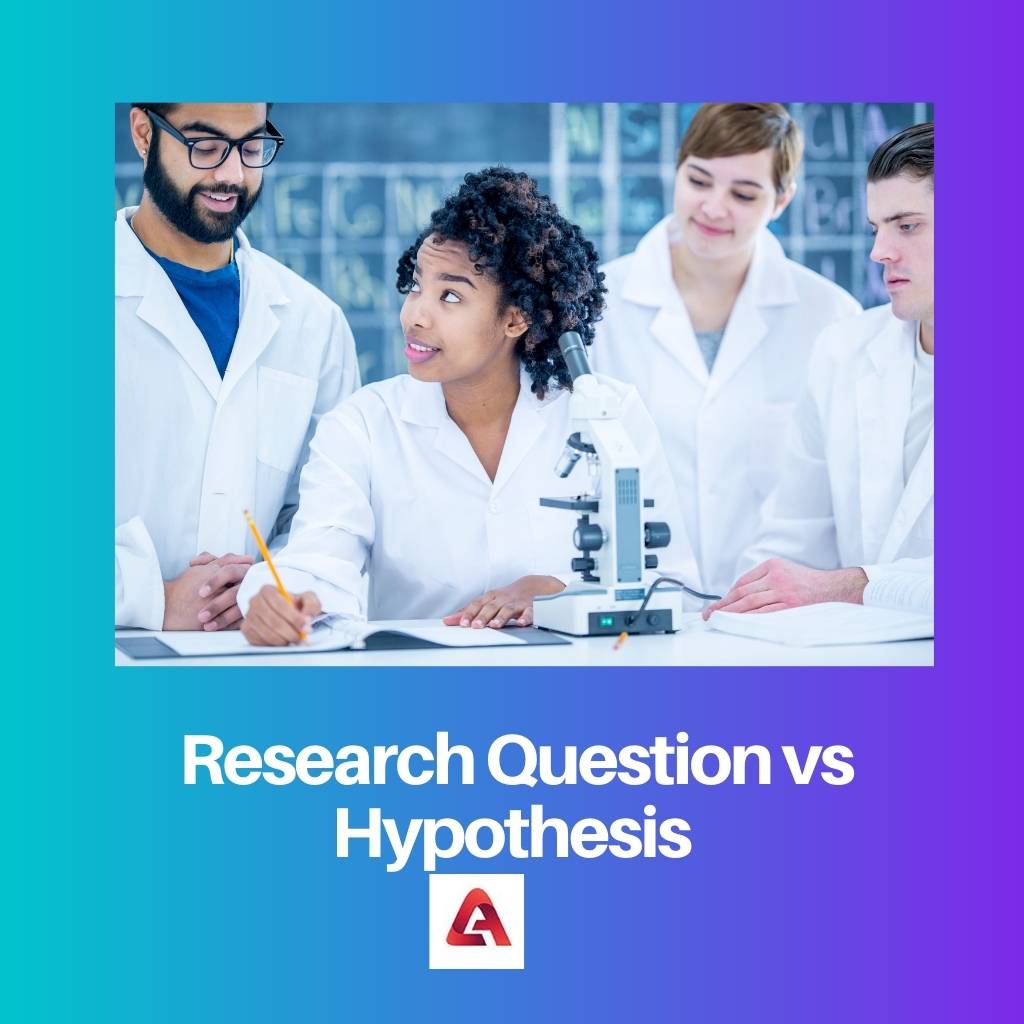
The research question poses a question that is then to be solved or answered through the research paper. Since it puts forth a question, it is inquisitive.
Hypothesis, on the other hand, is an assumption on the possibility or impossibility of the task in question. It is a prediction of what the results of the research might yield.
Comparison Table
What is research question.
The research question is the question that forms the basis of the research. It is to find the answer to this question that one embarks on the journey of analyzing and researching a particular topic.
Similar Reads
- Research Method vs Research Methodology: Difference and Comparison
- Marketing Research vs Market Research: Difference and Comparison
- Formal Research vs Informal Research: Difference and Comparison
- Hypothesis vs Prediction: Difference and Comparison
- Hypothesis vs Aim: Difference and Comparison
It can be incorporated in studies that are quantitative as well as qualitative. The research question should be concise and to the point.
The research question should be put forth or presented at the very beginning of the research study to give an idea about the topic and the answers it aims to find.
The format used to write it is that of posing a proper question. Depending on the subject, there are various methods using which one needs to frame the research question.
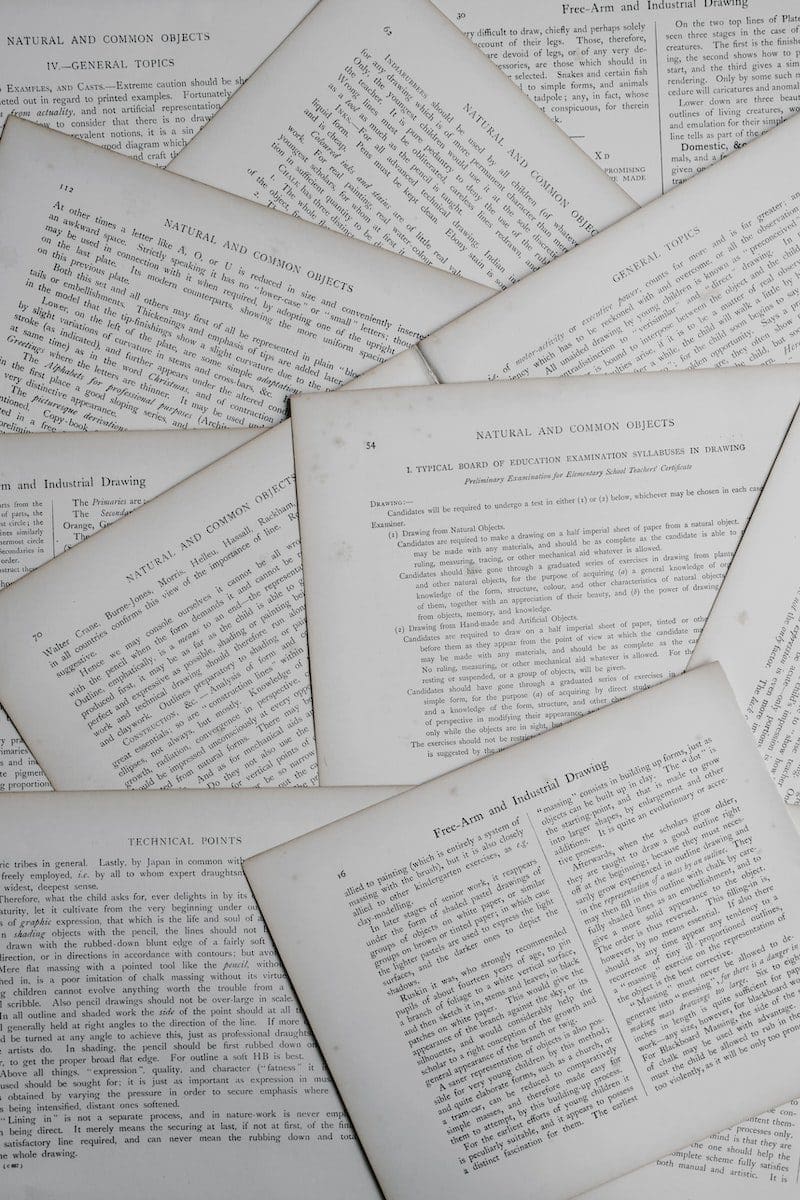
What is Hypothesis?
Hypothesis is a statement that suggests or predicts the outcome of the research. It predicts how a certain thing or project will pan out or behave.
The hypothesis is mostly used in experimental and quantitative research and studies. It is used in scientific experiments and projects, and it can also be used in other fields such as mathematics, sociology, etc.
A hypothesis can be written or derived when ample research is conducted on a specific topic or the topic in question.
Since a hypothesis is a predictive statement, it does not allow for the possibility of multiple outcomes. It leaves very little space for diversified results.

Main Differences Between Research Question and Hypothesis
- A research question allows for the possibility of multiple and varied results. On the other hand, the hypothesis does not provide a multitude of possibilities.
- A research question is inquisitive since it puts forth a question, whereas a hypothesis is predictive as it assumes the experiment’s outcome or result based on prior studies.
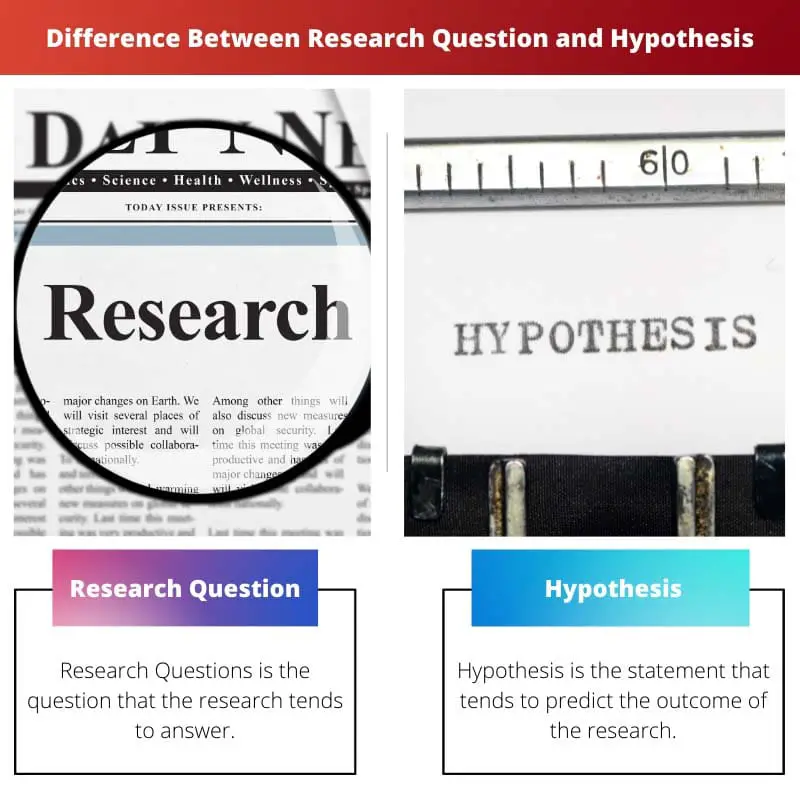
- https://www.researchgate.net/profile/Inga-Jenset/publication/313876542_Linking_practice_to_theory_in_teacher_education_Teacher_candidates’_opportunities_to_talk_about_field_experiences/links/58ad822d45851503be91af6f/Linking-practice-to-theory-in-teacher-education-Teacher-candidates-opportunities-to-talk-about-field-experiences.pdf
- https://academicjournals.org/journal/IJEAPS/article-abstract/334464E40792
Last Updated : 22 July, 2023

I’ve put so much effort writing this blog post to provide value to you. It’ll be very helpful for me, if you consider sharing it on social media or with your friends/family. SHARING IS ♥️

Emma Smith holds an MA degree in English from Irvine Valley College. She has been a Journalist since 2002, writing articles on the English language, Sports, and Law. Read more about me on her bio page .
Share this post!
19 thoughts on “research question vs hypothesis: difference and comparison”.
The precise description of a research question and a hypothesis is highly informative. The differences in nature and structure are clearly outlined, offering a thorough understanding of both aspects.
The difference between Research Question and Hypothesis is well explained. The emphasis on structure and nature of both is beneficial for a more in-depth understanding.
I absolutely agree with you. The comparison table and the description for both the research question and hypothesis are quite clear and helpful.
The main differences between a research question and a hypothesis are elucidated with great clarity. The emphasis on their distinctive characteristics enhances the comprehension of their roles in research studies.
Absolutely. The comprehensive information provided on research questions and hypotheses serves as a valuable resource for researchers looking to strengthen their knowledge in this area.
Indeed. The comparison table and detailed explanations contribute significantly to understanding the key disparities between a research question and a hypothesis.
The explanation of what a research question should entail is quite enlightening. The format used for writing it is indeed an essential factor, and this article provides a clear insight into it.
I couldn’t agree more. Understanding the structure of a research question is fundamental for every researcher. It’s good to see these insights shared here.
The detailed explanation of a research question and a hypothesis is highly insightful. Understanding the essence of both elements is crucial for researchers, and this article does a commendable job of elucidating them.
The comparison between research question and hypothesis is excellent. The clear explanation of their differences in outcomes and nature enriches the understanding of their respective roles in research.
Absolutely. The emphasis on the differences in nature and outcomes provides a comprehensive understanding of these research components.
I concur. The article effectively highlights the distinct roles of a research question and a hypothesis in research studies.
The distinction between a research question and a hypothesis has been articulated very well. Both are essential components of a research paper, and it’s important to understand their distinct roles.
The explicit differentiation between a research question and a hypothesis is truly beneficial for anyone engaging in research. The predictive nature of a hypothesis and the inquisitive nature of a research question are well elucidated.
Absolutely. The article provides a clear comparison that enhances the understanding of these components in research papers.
I couldn’t agree more. The comprehensive explanation enables researchers to discern the roles and characteristics of a research question and a hypothesis effectively.
The detailed differentiation between Research Question and Hypothesis is truly enlightening. It’s really crucial to understand the distinction in order to conduct a thorough and successful research.
Indeed, the comprehensive information regarding the nature and structure of a research question and a hypothesis serves as a valuable guide for researchers.
The section explaining what a hypothesis is and its application in various fields is enlightening. It’s good to see relevant references provided to support the information presented.
Leave a Comment Cancel reply
Save my name, email, and website in this browser for the next time I comment.
Want to save this article for later? Click the heart in the bottom right corner to save to your own articles box!

Sciencing_Icons_Science SCIENCE
Sciencing_icons_biology biology, sciencing_icons_cells cells, sciencing_icons_molecular molecular, sciencing_icons_microorganisms microorganisms, sciencing_icons_genetics genetics, sciencing_icons_human body human body, sciencing_icons_ecology ecology, sciencing_icons_chemistry chemistry, sciencing_icons_atomic & molecular structure atomic & molecular structure, sciencing_icons_bonds bonds, sciencing_icons_reactions reactions, sciencing_icons_stoichiometry stoichiometry, sciencing_icons_solutions solutions, sciencing_icons_acids & bases acids & bases, sciencing_icons_thermodynamics thermodynamics, sciencing_icons_organic chemistry organic chemistry, sciencing_icons_physics physics, sciencing_icons_fundamentals-physics fundamentals, sciencing_icons_electronics electronics, sciencing_icons_waves waves, sciencing_icons_energy energy, sciencing_icons_fluid fluid, sciencing_icons_astronomy astronomy, sciencing_icons_geology geology, sciencing_icons_fundamentals-geology fundamentals, sciencing_icons_minerals & rocks minerals & rocks, sciencing_icons_earth scructure earth structure, sciencing_icons_fossils fossils, sciencing_icons_natural disasters natural disasters, sciencing_icons_nature nature, sciencing_icons_ecosystems ecosystems, sciencing_icons_environment environment, sciencing_icons_insects insects, sciencing_icons_plants & mushrooms plants & mushrooms, sciencing_icons_animals animals, sciencing_icons_math math, sciencing_icons_arithmetic arithmetic, sciencing_icons_addition & subtraction addition & subtraction, sciencing_icons_multiplication & division multiplication & division, sciencing_icons_decimals decimals, sciencing_icons_fractions fractions, sciencing_icons_conversions conversions, sciencing_icons_algebra algebra, sciencing_icons_working with units working with units, sciencing_icons_equations & expressions equations & expressions, sciencing_icons_ratios & proportions ratios & proportions, sciencing_icons_inequalities inequalities, sciencing_icons_exponents & logarithms exponents & logarithms, sciencing_icons_factorization factorization, sciencing_icons_functions functions, sciencing_icons_linear equations linear equations, sciencing_icons_graphs graphs, sciencing_icons_quadratics quadratics, sciencing_icons_polynomials polynomials, sciencing_icons_geometry geometry, sciencing_icons_fundamentals-geometry fundamentals, sciencing_icons_cartesian cartesian, sciencing_icons_circles circles, sciencing_icons_solids solids, sciencing_icons_trigonometry trigonometry, sciencing_icons_probability-statistics probability & statistics, sciencing_icons_mean-median-mode mean/median/mode, sciencing_icons_independent-dependent variables independent/dependent variables, sciencing_icons_deviation deviation, sciencing_icons_correlation correlation, sciencing_icons_sampling sampling, sciencing_icons_distributions distributions, sciencing_icons_probability probability, sciencing_icons_calculus calculus, sciencing_icons_differentiation-integration differentiation/integration, sciencing_icons_application application, sciencing_icons_projects projects, sciencing_icons_news news.
- Share Tweet Email Print
- Home ⋅
- Science Fair Project Ideas for Kids, Middle & High School Students ⋅
- Probability & Statistics
The Difference Between Research Questions & Hypothesis

To Calculate Arcsine, What Buttons Do You Press on a Scientific ...
Research questions and hypothesis are tools used in similar ways for different research methods. Both hypothesis and research questions are written before research begins and are used to help guide the research. Hypothesis are used in deductive research, where researchers use logic and scientific findings to either prove or disprove assumptions. Heuristic research is based on experience, where researchers use observations to learn about the research subject.
Definitions
A hypothesis is defined as an educated guess, while a research question is simply the researcher wondering about the world. Hypothesis are part of the scientific research method. They are employed in research in science, sociology, mathematics and more. Research questions are part of heuristic research methods, and are also used in many fields including literature, and sociology.
As its name suggests, research questions are always written as questions. Hypothesis are written as statements preceded with the words "I predict." For example, a research question would ask, "What is the effect of heat on the effectiveness of bleach?" A hypothesis would state, "I predict heat will diminish the effectiveness of bleach."
Before Writing
Before writing a hypothesis, the researcher must determine what others have discovered about this subject. On the other hand, a research question requires less preparation, but focus and structure is critical.
For example, a researcher using a hypothesis would look up studies about bleach, information on the chemical properties of the chemical when heated and data about its effectiveness before writing the hypothesis. When using a research question, the researcher would think about how to phrase the question to ensure its scope is not too broad, too narrow or impossible to answer.
Writing Conclusions
When writing the conclusion for research conducted using a hypothesis, the researcher will write whether the hypothesis was correct or incorrect, followed by an explanation of the results of the research. The researcher using only a research question will write the answer to the question, followed by the findings of the research.
Related Articles
To calculate arcsine, what buttons do you press on..., what does data mean in a science fair project, how to test for acidity with litmus paper, how to write a hypothesis of magic milk for 5th grade, difference between proposition & hypothesis, what are the 8 steps in scientific research, how to write a summary on a science project, how to calculate a p-value, what is a quotient & dividend, how to calculate calibration curves, research methods in science, test your knowledge on middle school science, how to use log on a ti-83, how to calculate solubilities, how to calculate a standard score, science project ideas & the scientific method, how to convert pounds per square foot to psi, density vs. concentration, what is an engineering goal in a science project, what is the purpose of factor analysis.
- The Research Assistant: The Relationship Between the Research Question, Hypotheses, Specific Aims, and Long-Term Goals of the Project
About the Author
Alane Michaelson began writing professionally in 2002. Her work has appeared in Michigan publications such as the "Detroit Free Press" and the "Flint Journal." Michaelson graduated from Oakland University in 2006, earning a Bachelor of Arts in journalism.
Photo Credits
Photos.com/liquidlibrary/Getty Images
Find Your Next Great Science Fair Project! GO
Research Paper Writing Guides
Research Paper Hypothesis
Last updated on: Mar 27, 2024
How To Write A Hypothesis In A Research Paper - A Simple Guide
By: Barbara P.
Reviewed By:
Published on: Mar 6, 2024

Writing a good hypothesis can be tricky, especially for new researchers. If your hypothesis isn't clear, your research paper might confuse readers about what you're studying and what are the anticipated outcomes of your study.
This confusion not only makes your research less trustworthy but also makes it harder for others to repeat or build on your work.
This blog post is here to help you understand how to state a hypothesis in a research paper. We'll go through it step by step, so you can learn to craft the important parts, like how you identify variables and formulate a clear hypothesis.
With these skills, you can make sure your hypothesis is clear and can be tested. So, get ready to craft a strong hypothesis!
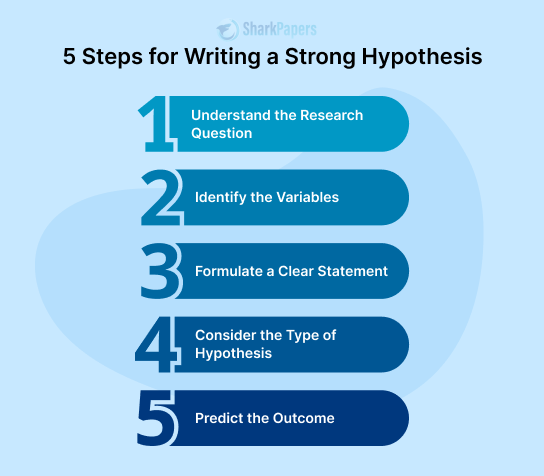
On this Page
What is a Hypothesis in Research?
A hypothesis in research paper is a clear and testable statement or prediction that proposes a relationship between two or more variables.
It serves as a foundation for scientific investigations, guiding researchers in designing experiments and collecting data to either support or refute the hypothesis.
Research Question vs. Hypothesis vs. Thesis Statement
Research Question, Hypothesis, and Thesis Statement are three distinct elements in the research process, each serving a specific purpose.
Here's a breakdown of their differences:
Components of a Hypothesis
If you are wondering what to write in a research hypothesis, here is the breakdown:
Different Types of Hypothesis
Hypotheses come in various forms, each tailored to address different aspects of research.

Simple Hypothesis
This hypothesis proposes a straightforward relationship between two variables. For example, "Increasing sunlight will lead to increased plant growth."
Complex Hypothesis
In contrast, a complex hypothesis involves multiple variables and intricate relationships. An example could be "The interaction of sunlight, soil quality, and water availability collectively influences plant growth."
Directional Hypothesis
A directional hypothesis predicts a specific outcome. For instance, "Higher levels of education will result in increased job satisfaction."
Non-directional Hypothesis
Conversely, a non-directional hypothesis suggests a relationship without specifying the expected direction. An example is "There is a correlation between exercise and weight loss."
Associative Hypothesis
This type suggests a relationship between variables without implying causation. For example, "There is an association between ice cream sales and drowning incidents."
Causal Hypothesis
Unlike associative hypotheses, causal hypotheses propose a cause-and-effect relationship. For instance, "Increasing water intake causes improvements in skin hydration."
Null Hypothesis (H0)
The null hypothesis assumes no effect or relationship between variables. An example is, "There is no significant difference in test scores between students who receive extra tutoring and those who do not."
Alternative Hypothesis
The alternative hypothesis suggests a specific effect or relationship. It contrasts with the null hypothesis. For instance, "There is a significant difference in test scores between students who receive extra tutoring and those who do not."
5 Steps of Writing a Strong Hypothesis
A strong hypothesis gives the reader a clear view of your research. In this section, we will explore the steps of writing a strong hypothesis in detail:
Step 1: Understand the Research Question
Before diving into hypothesis crafting, take time to comprehend your research problem . Break it down into its core components.
For instance, if your research question is,
"How does caffeine consumption affect students' test performance?":
- Identify the Main Focus: Clearly pinpoint the main aspect of the research question. In this case, it's the impact of caffeine consumption.
- Define Variables : Recognize the key variables involved. In our example, the independent variable is "caffeine consumption," and the dependent variable is "students' test performance."
- Refine the Question: Ask yourself what specific information you want to uncover. Is it the overall effect, a comparison between different levels of caffeine intake, or perhaps the timing of consumption? This refinement sets the stage for a more focused hypothesis.
Step 2: Identify the Variables
Understanding the variables of your research is crucial for defining the key roles and what changes you're anticipating.
They are the backbone of your hypothesis and create a focused and meaningful research approach.
- Independent Variable (The What You Tweak): Pinpoint the factor you're going to manipulate. For instance, if you're exploring the impact of fertilizer on plant growth, fertilizer becomes your independent variable.
- Dependent Variable (The What You Measure): Identify the factor you're measuring, the one expected to change due to the manipulation. In the plant growth example, it could be the height of the plants after a specific period—this is your dependent variable.
Step 3: Formulate a Clear Statement
Precision is the key to shaping a concise and strong hypothesis. To create a well-structured hypothesis, condense your thoughts into a single, easy-to-follow sentence.
Also, do not forget to clearly express the expected connection between your independent and dependent variables.
Step 4: Consider the Type of Hypothesis
In this step, you decide on the type of your hypothesis—whether it's giving a specific prediction or leaving room for surprises.
- Example of Directional Hypothesis: "Increasing product advertising will result in higher sales."
- Example of Non-Directional Hypothesis: "There is a significant correlation between stress levels and job performance."
Step 5: Predict the Outcome
Predicting the outcome is like offering a sneak peek into the conclusion of your research narrative.
By following these five steps, you'll be well-equipped to create a strong and effective hypothesis, providing a solid foundation for your research.
Check out this example of hypothesis for a research paper for better understanding:
Example Of Hypothesis In Research Proposal PDF
How to Write a Null Hypothesis In A Research Paper
Writing a null hypothesis in a research paper involves stating a proposition that there is no significant difference or effect.
Here are some tips for writing a null hypothesis:
- Reverse the Statement: Formulate the null hypothesis by reversing the statement of the research hypothesis to suggest no significant difference or effect.
- Use Equality Sign: Express the null hypothesis using an equality sign, such as "equals" or "is not significantly different from."
- Be Specific and Testable: Make the null hypothesis specific and testable, ensuring it can be evaluated through data analysis.
- Consider the Context: Ensure that the null hypothesis is appropriate for the context of your research.
Here is an example of a null hypothesis:
How to Write an Alternative Hypothesis?
Writing an alternative hypothesis, also known as the research hypothesis, involves stating a proposition that suggests a significant difference or effect between variables.
Here are some tips for writing an alternative hypothesis:
- Formulate a Prediction: Formulate a clear prediction or expectation regarding the relationship or effect between the variables.
- Express the Relationship: Clearly express the anticipated relationship or effect using specific terms, such as "greater than," "less than," or "different from."
- Use Inequality Sign: Utilize an inequality sign (>, <, ?) to represent the direction of the expected difference or effect.
Here's a PDF example for an alternative hypothesis:
How to Write an Alternative Hypothesis
In a nutshell, hypotheses aren't just words; they guide us in discovering new things. So, as you dive into your own research, use clear hypotheses to represent yours to illuminate your research question.
But if you face any problem in creating a meaningful hypothesis or any section of your research paper, get help from the top paper writing service online .
Our expert writers will help you in creating an outstanding research paper that will show your command over the topic.
So, don’t waste time! Get your research papers from experts today!

Barbara has a Ph.D. in public health from an Ivy League university and extensive experience working in the medical field. With her practical experience conducting research on various health issues, she is skilled in writing innovative papers on healthcare. Her many works have been published in multiple publications.
Was This Blog Helpful?
Keep reading.
- Learning How to Write a Research Paper: Step-by-Step Guide
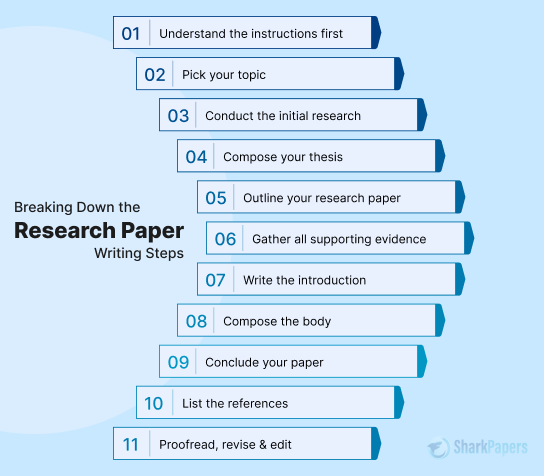
- Best 300+ Ideas For Research Paper Topics in 2024
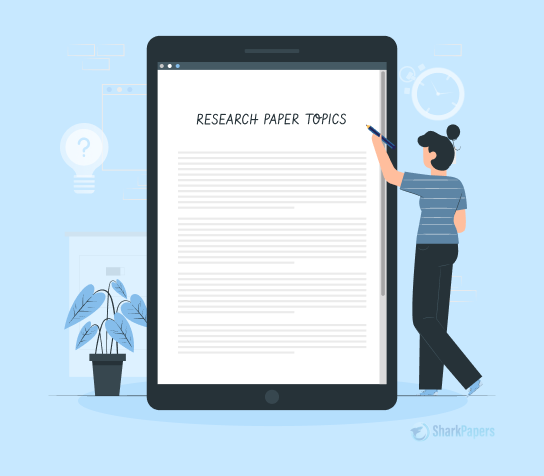
- A Complete Guide to Help You Write a Research Proposal

- The Definitive Guide on How to Start a Research Paper
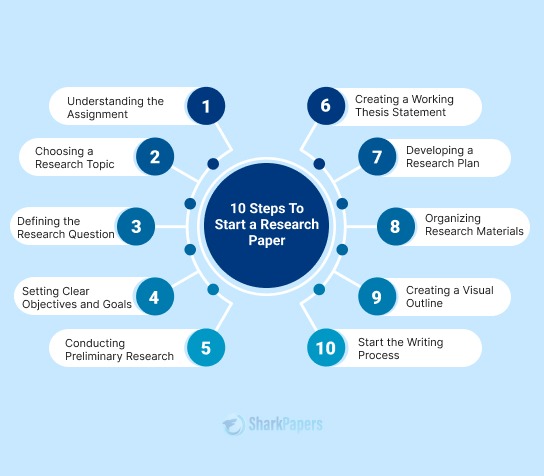
- How To Write An Introduction For A Research Paper - A Complete Guide
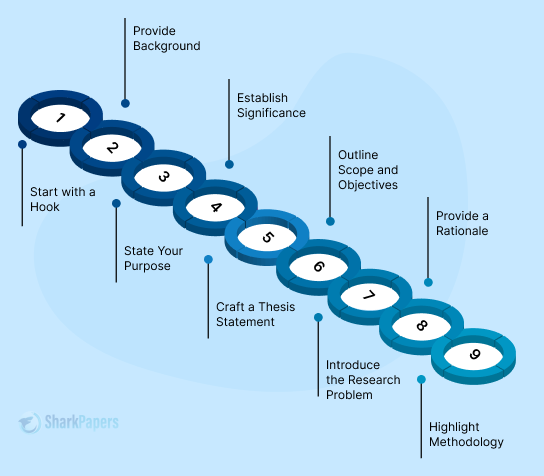
- Learn How To Write An Abstract For A Research Paper with Examples and Tips
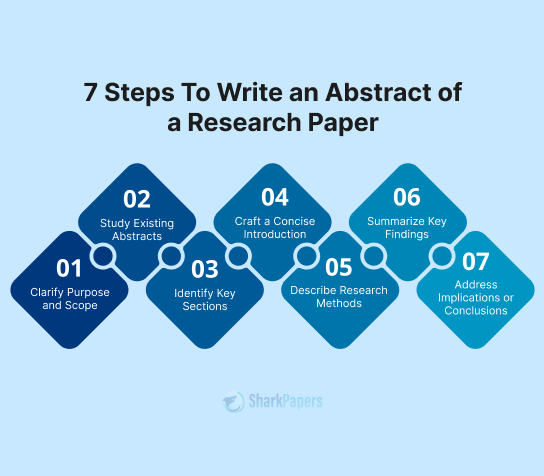
- How to Write a Literature Review for a Research Paper | A Complete Guide
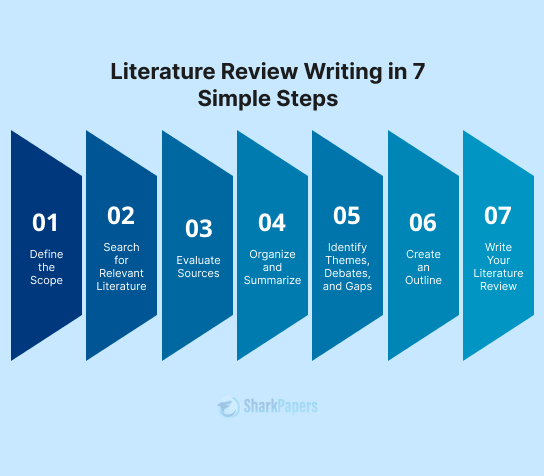
- How To Write The Methods Section of A Research Paper
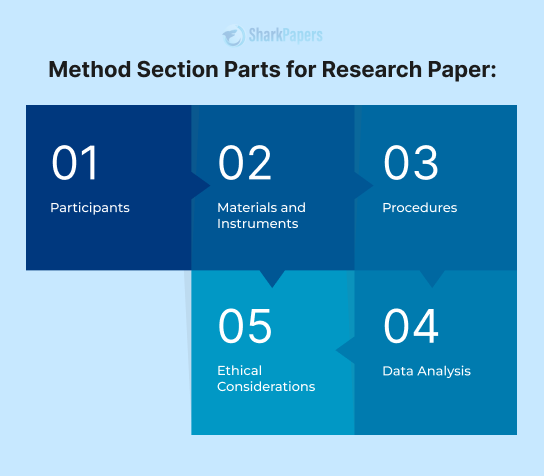
- How to Write a Research Paper Thesis: A Detailed Guide
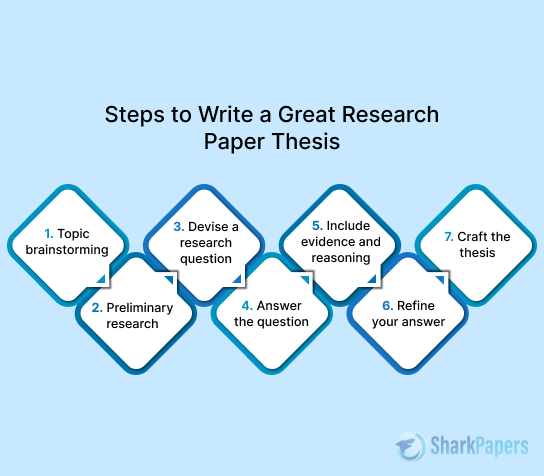
- How to Write a Research Paper Title That Stands Out
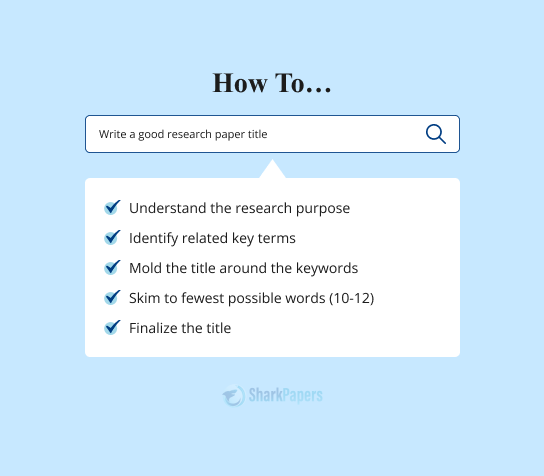
- A Detailed Guide on How To Write a Conclusion for a Research Paper
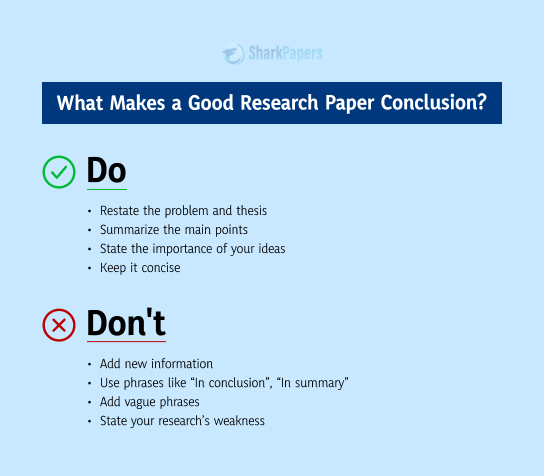
- How To Write The Results Section of A Research Paper | Steps & Tips
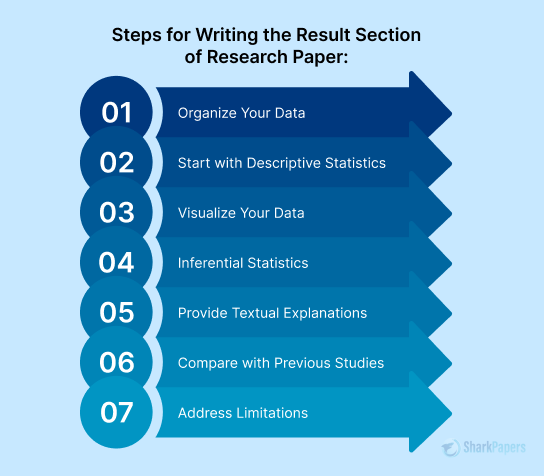
- How to Problem Statement for a Research Paper: An Easy Guide
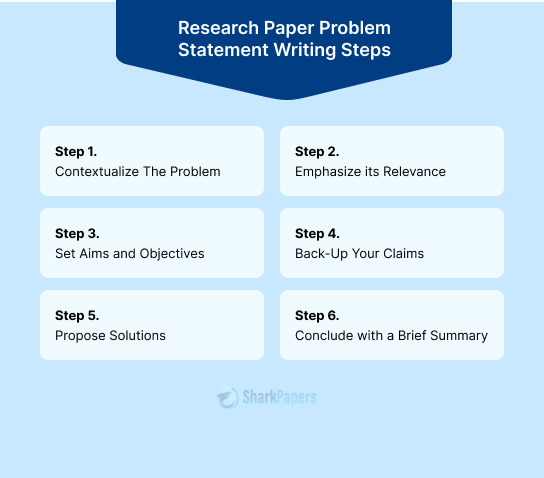
- How to Find Credible Sources for a Research Paper
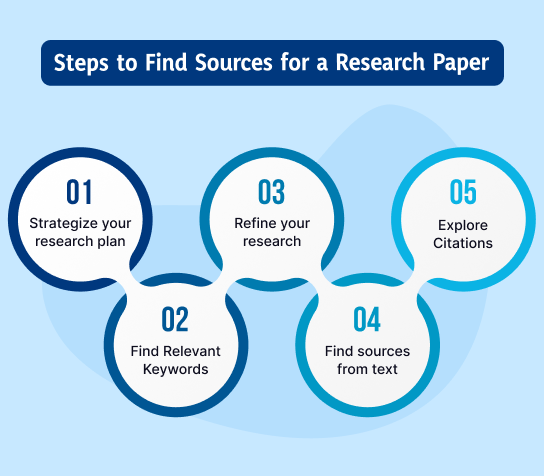
- A Detailed Guide: How to Write a Discussion for a Research Paper
)
- Learn How To Cite A Research Paper in Different Formats: The Basics
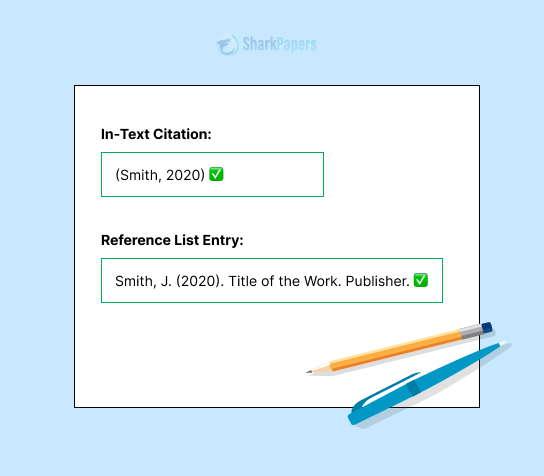
- The Ultimate List of Ethical Research Paper Topics in 2024
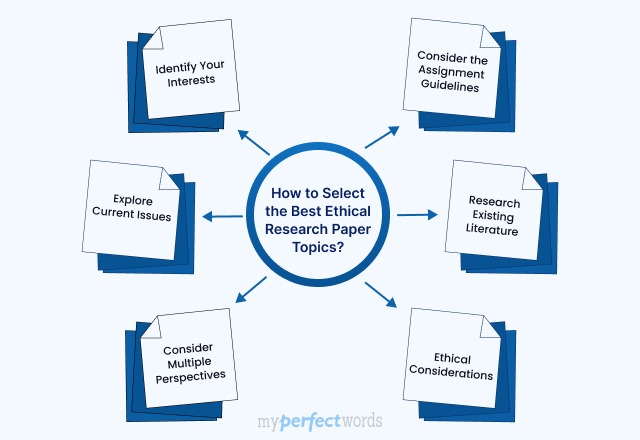
- 150+ Controversial Research Paper Topics to Get You Started
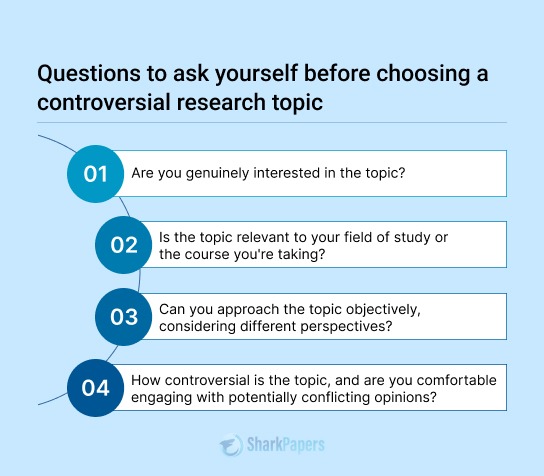
- How to Edit Research Papers With Precision: A Detailed Guide
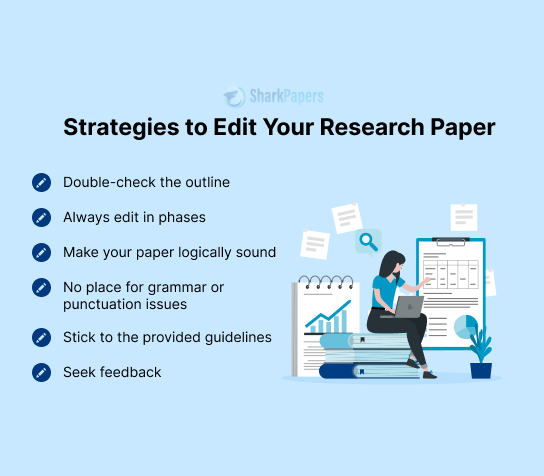
- A Comprehensive List of Argumentative Research Paper Topics
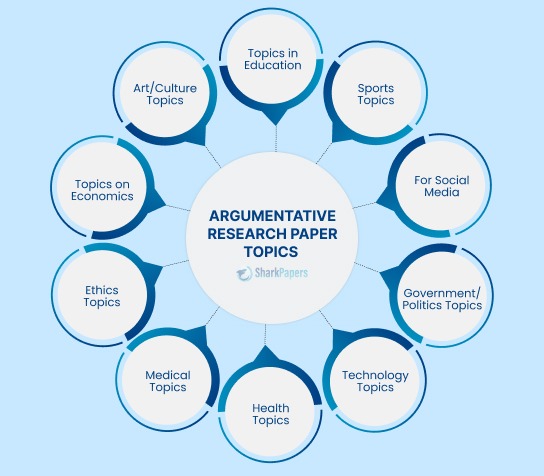
- A Detailed List of Amazing Art Research Paper Topics
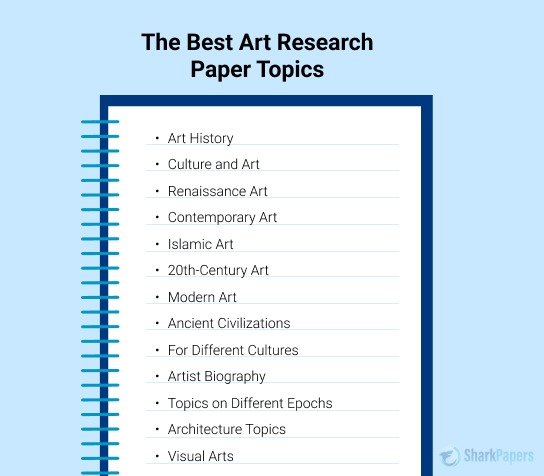
- Diverse Biology Research Paper Topics for Students: A Comprehensive List
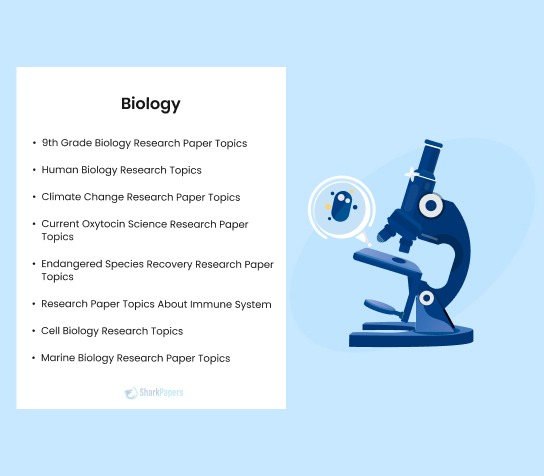
- 230 Interesting and Unique History Research Paper Topics
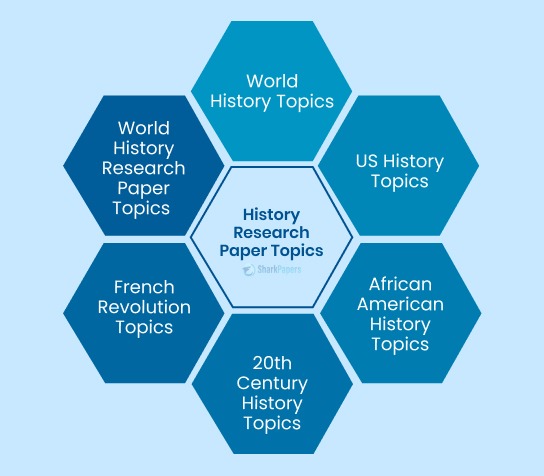
- 190 Best Business Research Paper Topics
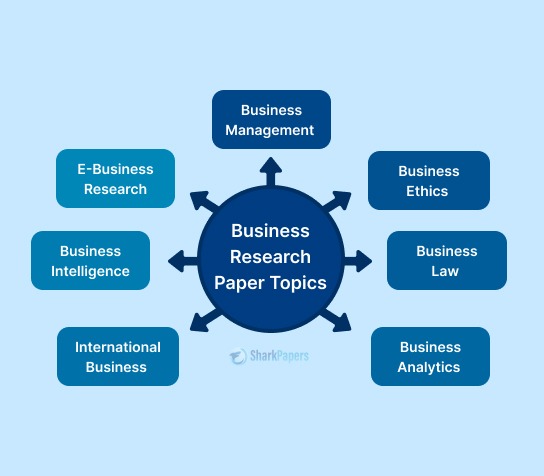
- 200+ Engaging and Novel Literature Research Paper Topics
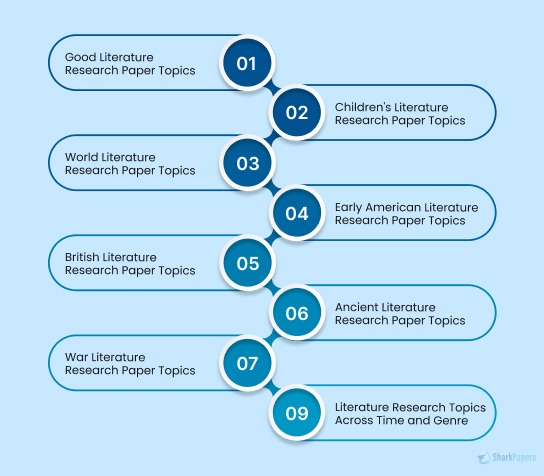
- A Guide on How to Write a Social Science Research
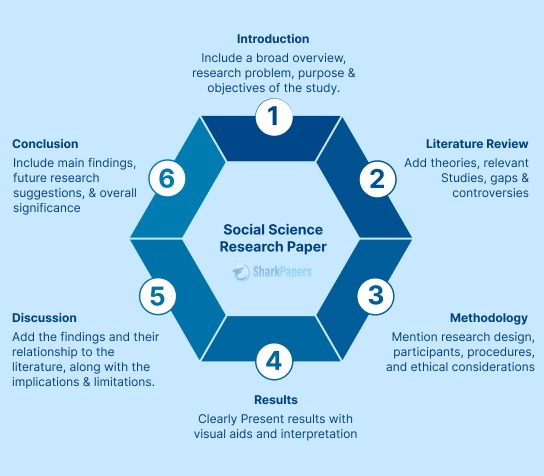
- Sociology Research Papers: Format, Outline, and Topics
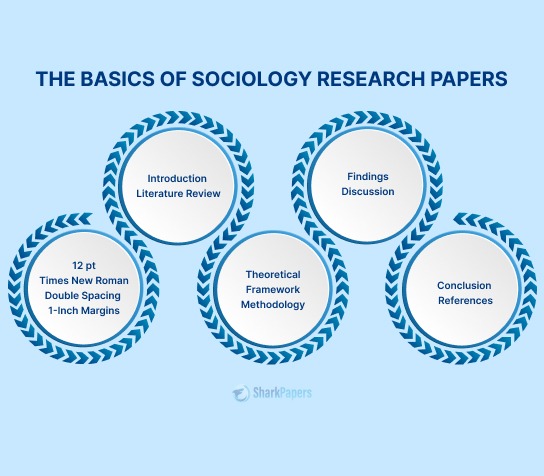
- Understanding the Basics of Biology Research Papers
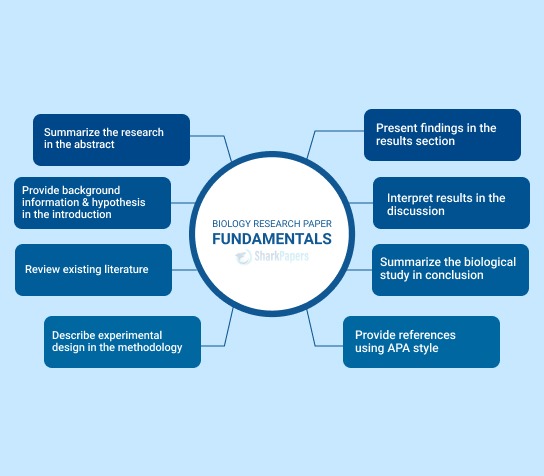
- How to Write a Psychology Research Paper: Guide with Easy Steps
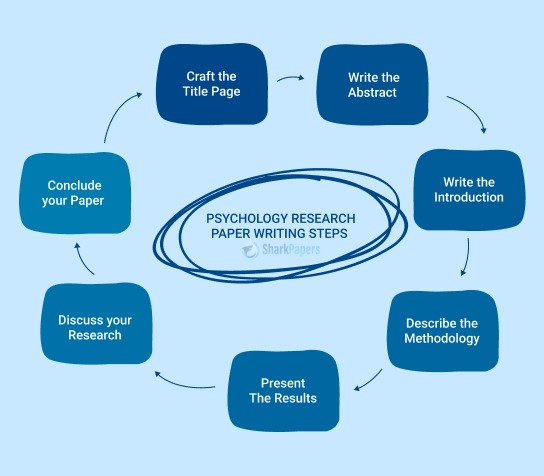
- Exploring the Different Types of Research Papers: A Guide
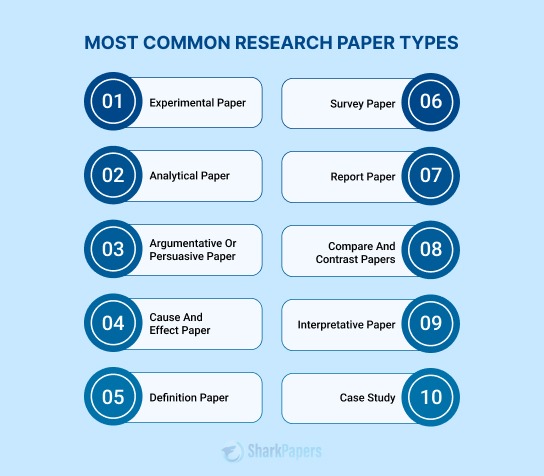
People Also Read
- literary analysis essay
- book report
- thematic statement
- chicago style
- 500 word essay
Burdened With Assignments?

Advertisement
© 2024 - All rights reserved
2000+ SATISFIED STUDENTS
95% Satisfaction RATE
30 Days Money Back GUARANTEE
95% Success RATE
Privacy Policy | Terms & Conditions | Contact Us
© 2021 SharkPapers.com(Powered By sharkpapers.com). All rights reserved.
© 2022 Sharkpapers.com. All rights reserved.
LOGIN TO YOUR ACCOUNT
SIGN UP TO YOUR ACCOUNT
- Your phone no.
- Confirm Password
- I have read Privacy Policy and agree to the Terms and Conditions .
FORGOT PASSWORD
- SEND PASSWORD

IMAGES
VIDEO
COMMENTS
Developing a hypothesis (with example) Step 1. Ask a question. Writing a hypothesis begins with a research question that you want to answer. The question should be focused, specific, and researchable within the constraints of your project. Example: Research question.
3. Simple hypothesis. A simple hypothesis is a statement made to reflect the relation between exactly two variables. One independent and one dependent. Consider the example, "Smoking is a prominent cause of lung cancer." The dependent variable, lung cancer, is dependent on the independent variable, smoking. 4.
A research hypothesis (also called a scientific hypothesis) is a statement about the expected outcome of a study (for example, a dissertation or thesis). To constitute a quality hypothesis, the statement needs to have three attributes - specificity, clarity and testability. Let's take a look at these more closely.
This statement is based on background research and current knowledge.8,9 The research hypothesis makes a specific prediction about a new phenomenon10 or a formal statement on the expected relationship between an independent variable and a dependent variable.3,11 It ... The purpose of this paper is to establish a scientific framework for testing ...
A hypothesis is a statement you can approve or disapprove. You develop a hypothesis from a research question by changing the question into a statement. Primarily applied in deductive research, it involves the use of scientific, mathematical, and sociological findings to agree to or write off an assumption. Researchers use the null approach for ...
An effective hypothesis in research is clearly and concisely written, and any terms or definitions clarified and defined. Specific language must also be used to avoid any generalities or assumptions. Use the following points as a checklist to evaluate the effectiveness of your research hypothesis: Predicts the relationship and outcome.
It seeks to explore and understand a particular aspect of the research subject. In contrast, a research hypothesis is a specific statement or prediction that suggests an expected relationship between variables. It is formulated based on existing knowledge or theories and guides the research design and data analysis. 7.
Articulating a clear and concise research question is fundamental to conducting a robust and useful research study. Although "getting stuck into" the data collection is the exciting part of research, this preparation stage is crucial. Clear and concise research questions are needed for a number of reasons. Initially, they are needed to ...
A hypothesis is a tentative statement about the relationship between two or more variables. It is a specific, testable prediction about what you expect to happen in a study. It is a preliminary answer to your question that helps guide the research process. Consider a study designed to examine the relationship between sleep deprivation and test ...
A hypothesis is a predictive statement about the relationship between 2 or more variables. Research questions are similar to hypotheses, but they are in question format. We expand on that general definition by splitting research questions into 3 basic types: difference questions, associational questions, and descriptive questions. For difference and associational questions, basic means that ...
Hypothesis. A hypothesis, specifically in academic research, is an educated guess or assumption about an expected relationship or occurrence that can be tested to determine if it's correct. Essentially, you'll make a statement —almost like a prediction—about a specific event or a relationship between two or more variables.
A research hypothesis, in its plural form "hypotheses," is a specific, testable prediction about the anticipated results of a study, established at its outset. It is a key component of the scientific method. Hypotheses connect theory to data and guide the research process towards expanding scientific understanding.
The development of the research question, including a supportive hypothesis and objectives, is a necessary key step in producing clinically relevant results to be used in evidence-based practice. A well-defined and specific research question is more likely to help guide us in making decisions about study design and population and subsequently ...
When to use which. The decision to use a hypothesis or a research question largely hinges on the nature and objectives of the study. Essentially, researchers delineate between exploratory and confirmatory research. The former seeks to explore new phenomena and generate new insights, while the latter aims to verify existing theories and hypotheses.
A Hypothesis is a statement that predicts the relationship between two or more variables in a research study. Hypotheses are used in studies that aim to test cause-and-effect relationships between variables. A hypothesis is a tentative explanation for an observed phenomenon, and it is often derived from existing theory or previous research.
Another example for a directional one-tailed alternative hypothesis would be that. H1: Attending private classes before important exams has a positive effect on performance. Your null hypothesis would then be that. H0: Attending private classes before important exams has no/a negative effect on performance.
Research Question vs Hypothesis. The difference between Research Question and Hypothesis is that the research question is the question whose answer needs to be found through the research paper, whereas a hypothesis is an assertion that either approves or negates the matter in question. The two also differ in their structure, aim, nature, and so on.
A hypothesis is defined as an educated guess, while a research question is simply the researcher wondering about the world. Hypothesis are part of the scientific research method. They are employed in research in science, sociology, mathematics and more. Research questions are part of heuristic research methods, and are also used in many fields ...
There are seven different types of research hypotheses. Simple Hypothesis. A simple hypothesis predicts the relationship between a single dependent variable and a single independent variable. Complex Hypothesis. A complex hypothesis predicts the relationship between two or more independent and dependent variables. Directional Hypothesis.
Step 3: Formulate a Clear Statement. Precision is the key to shaping a concise and strong hypothesis. To create a well-structured hypothesis, condense your thoughts into a single, easy-to-follow sentence. Also, do not forget to clearly express the expected connection between your independent and dependent variables.
A hypothesis is a statement of the researcher's expectation or prediction about relationship among study variables. The research process begins and ends with the hypothesis. It is core to the ...